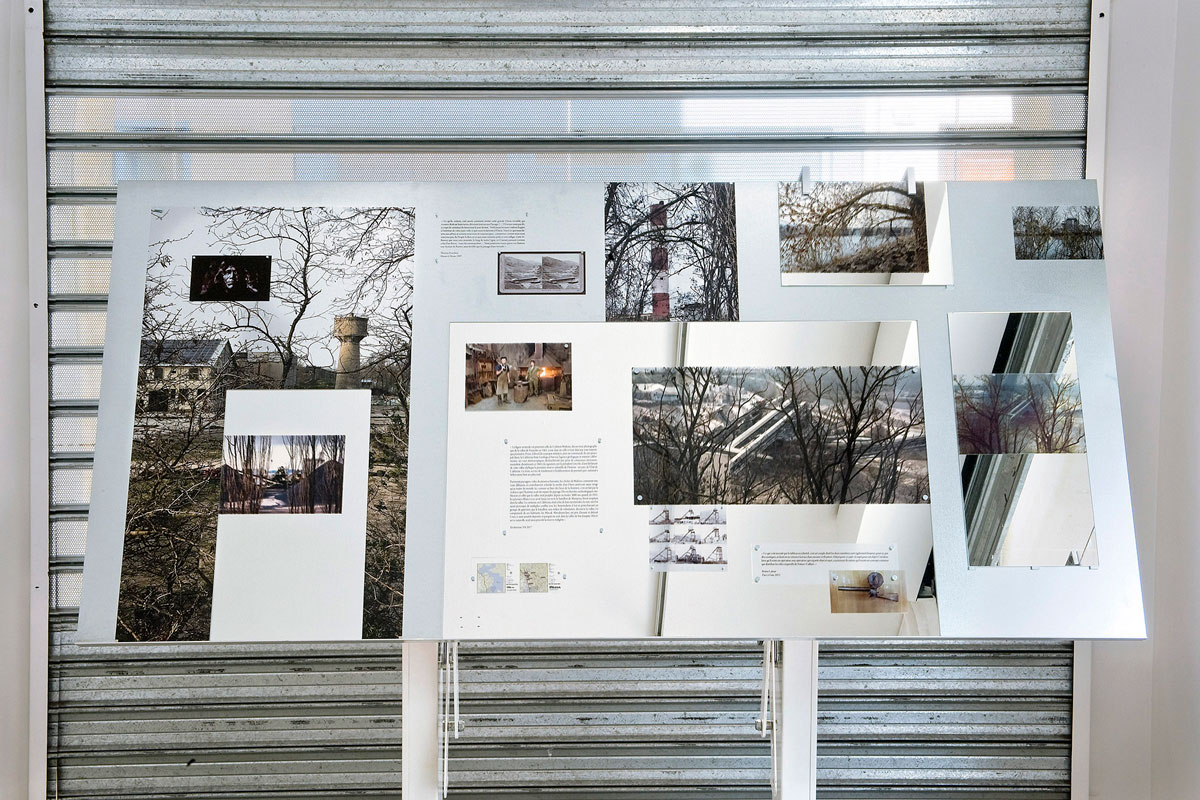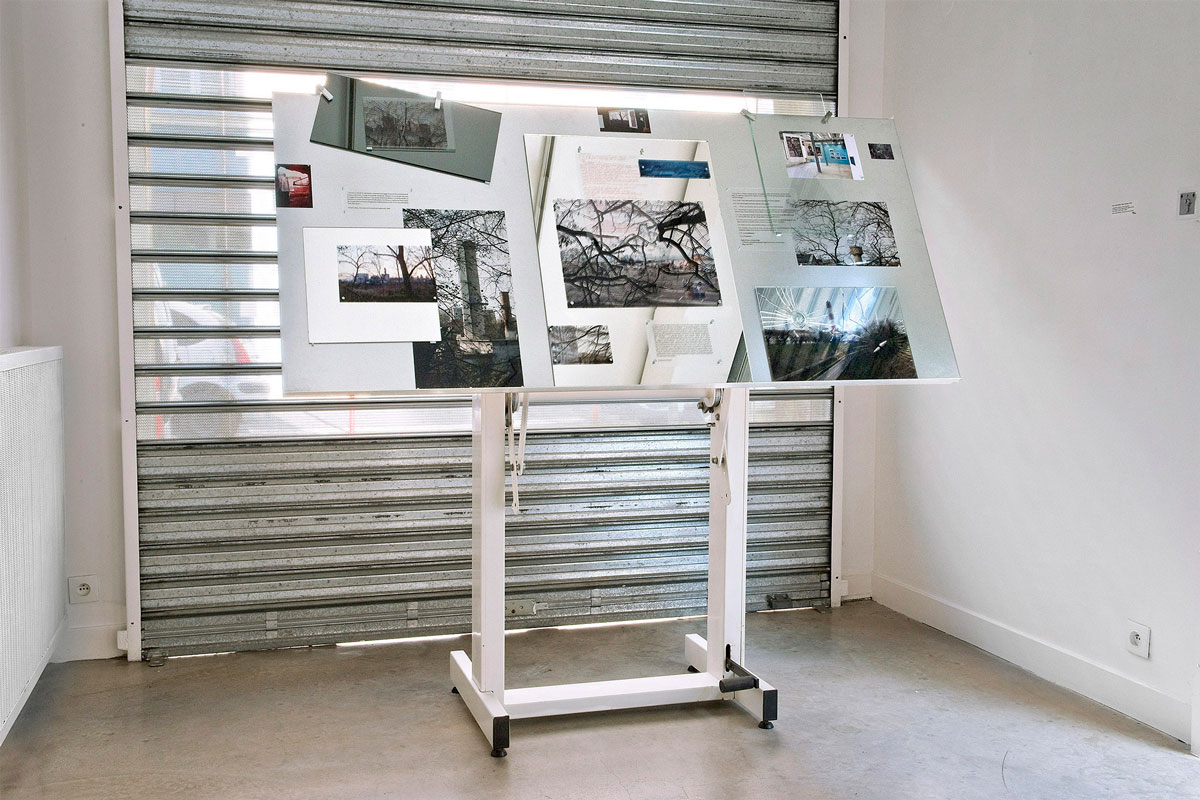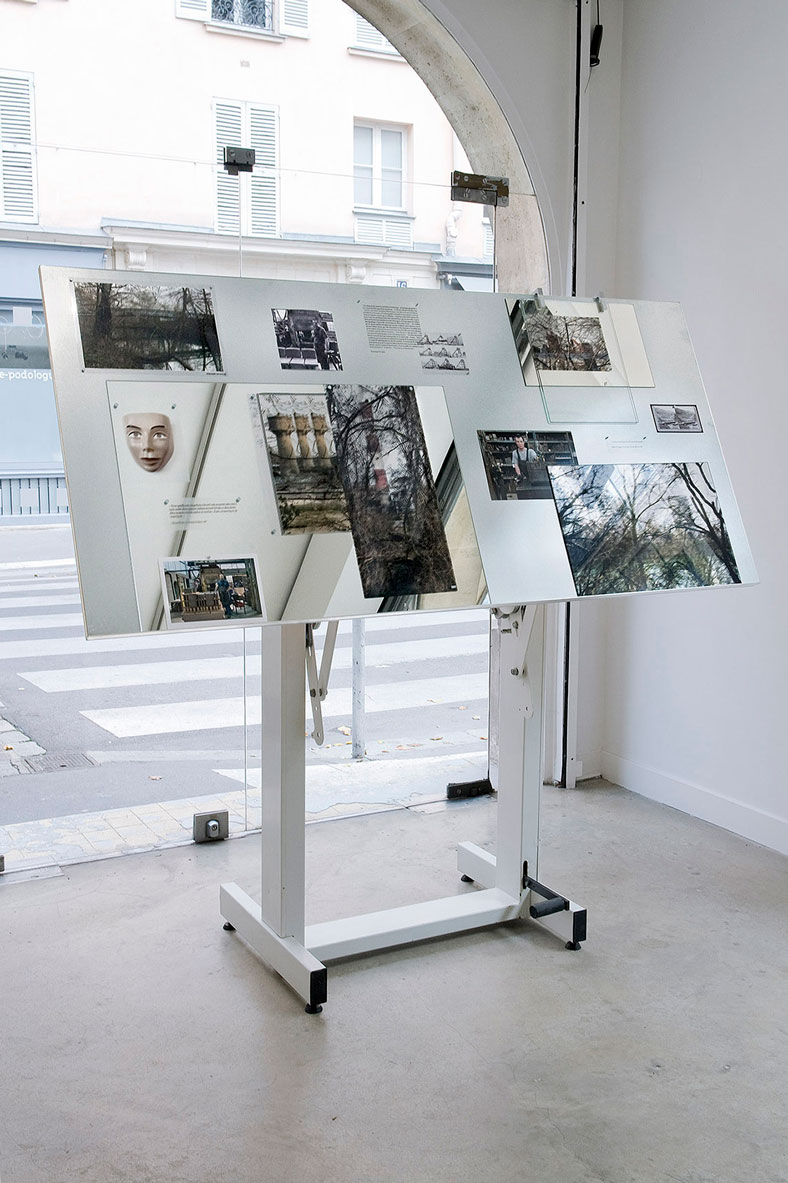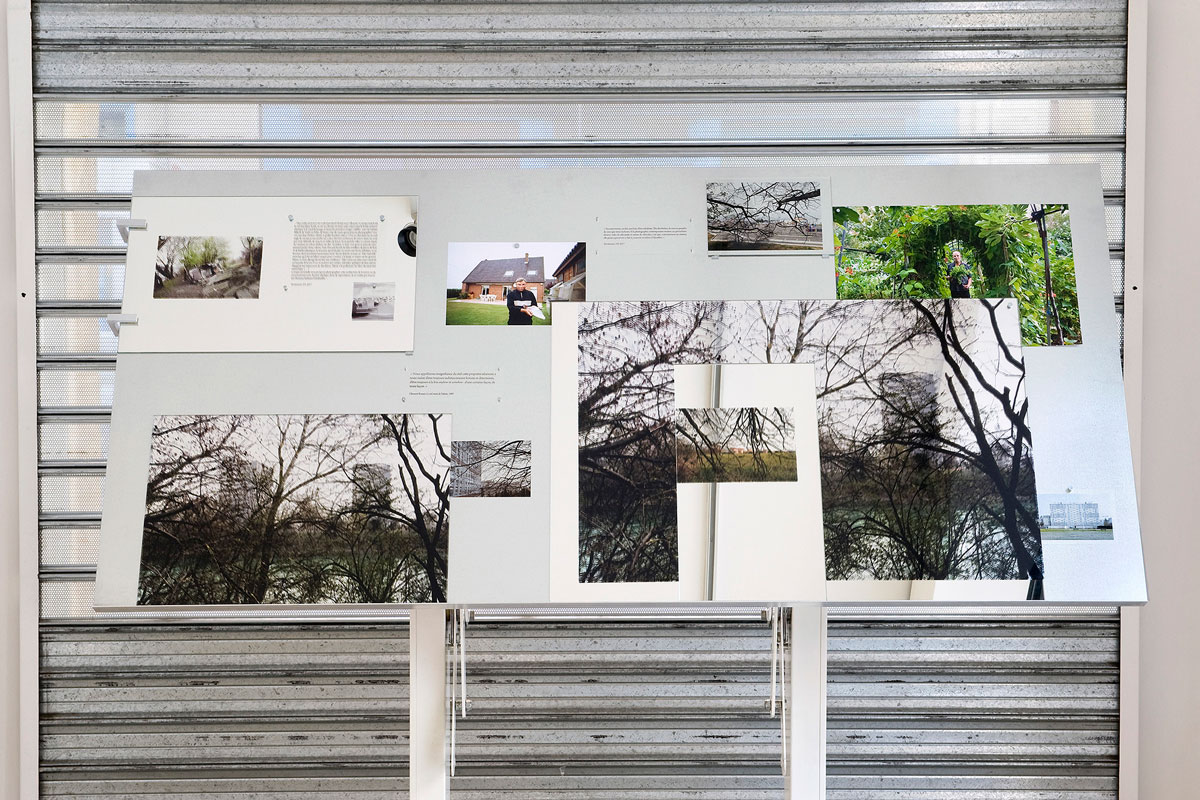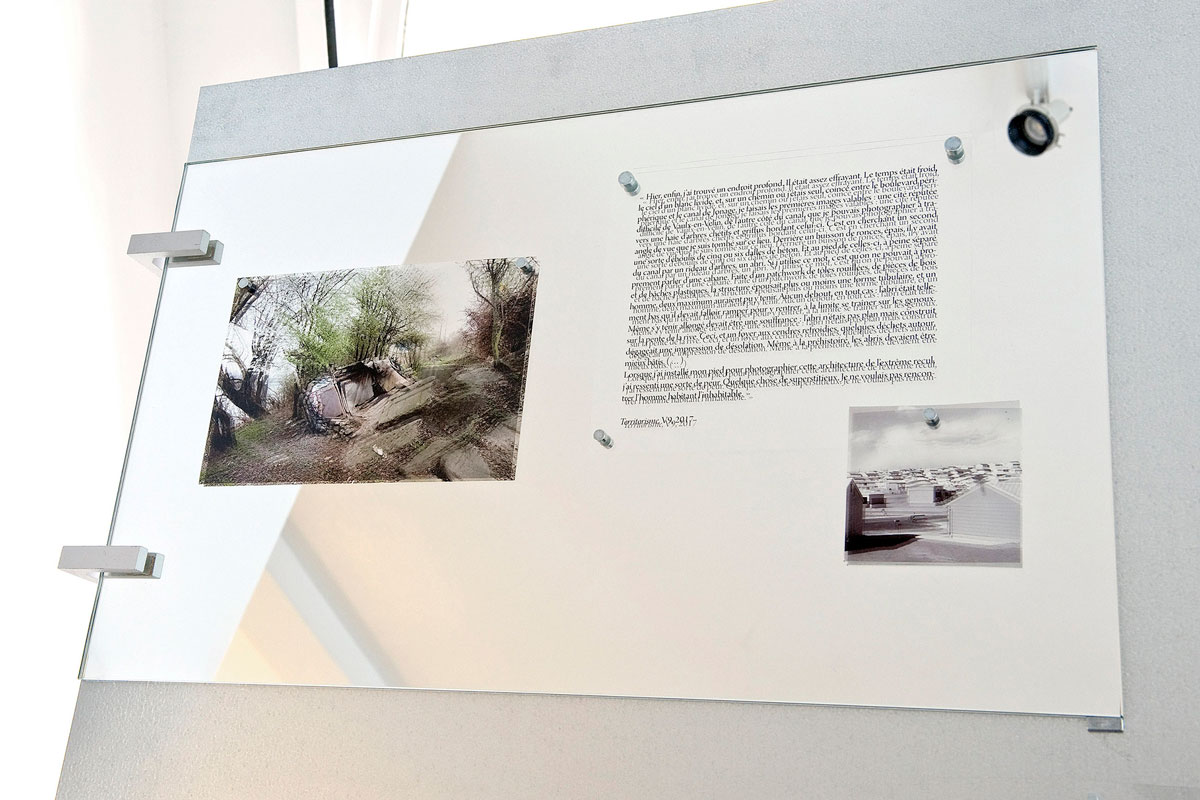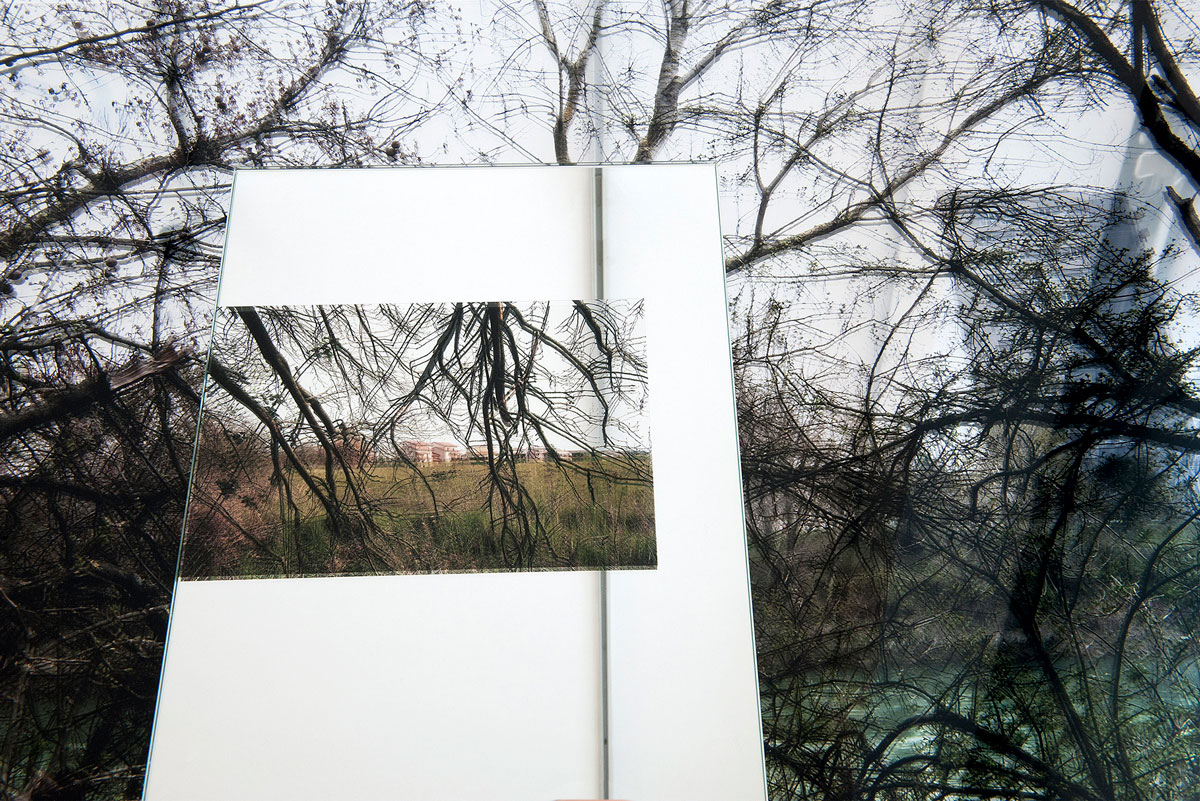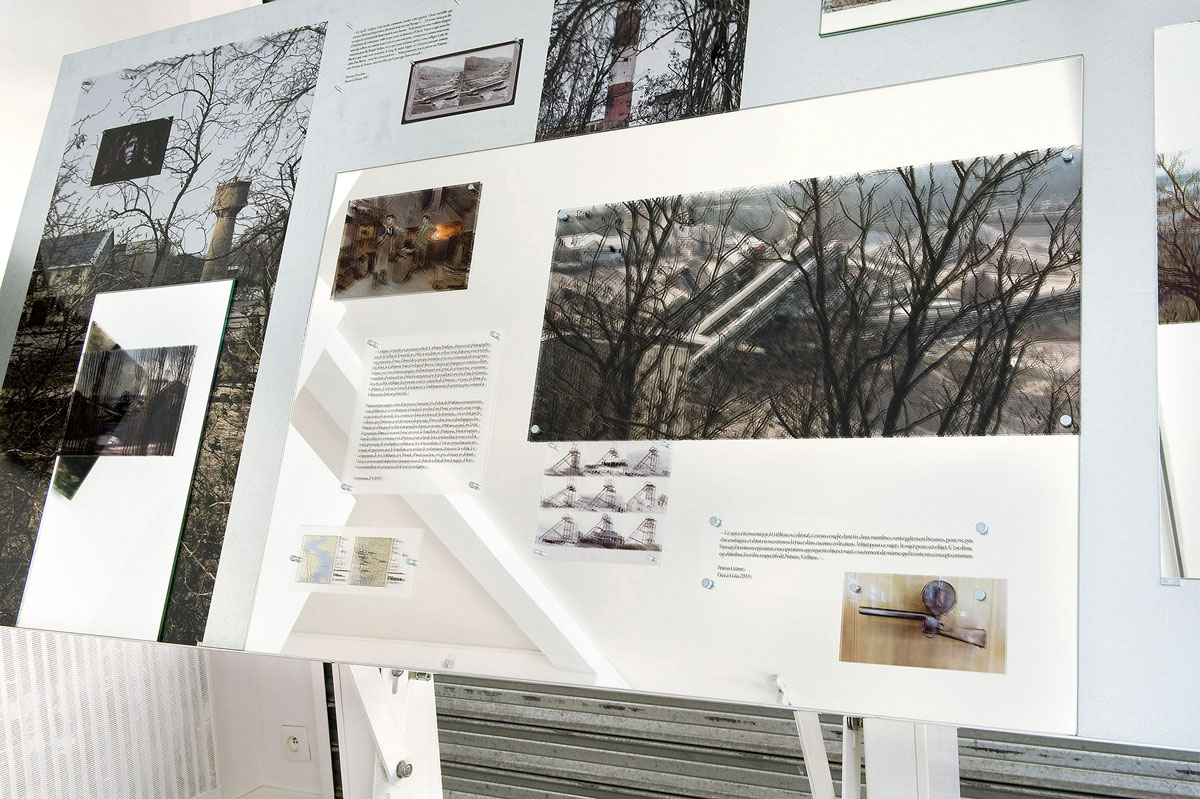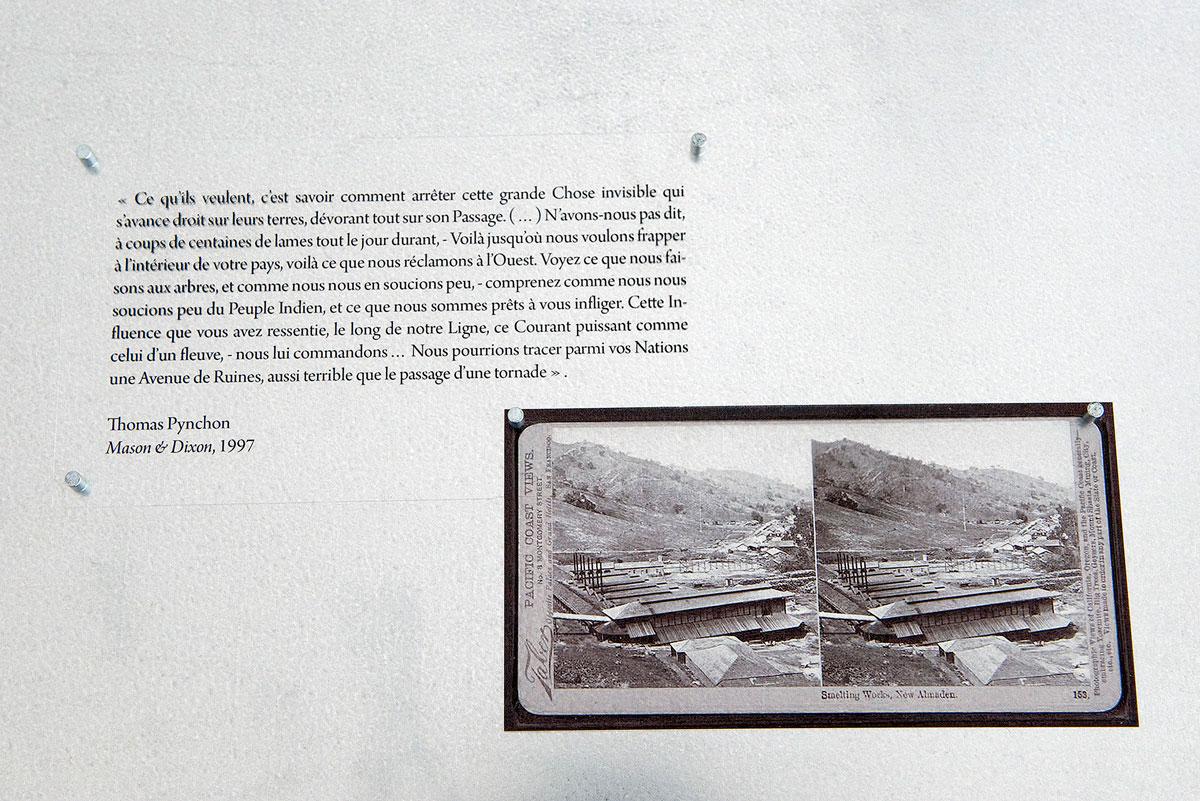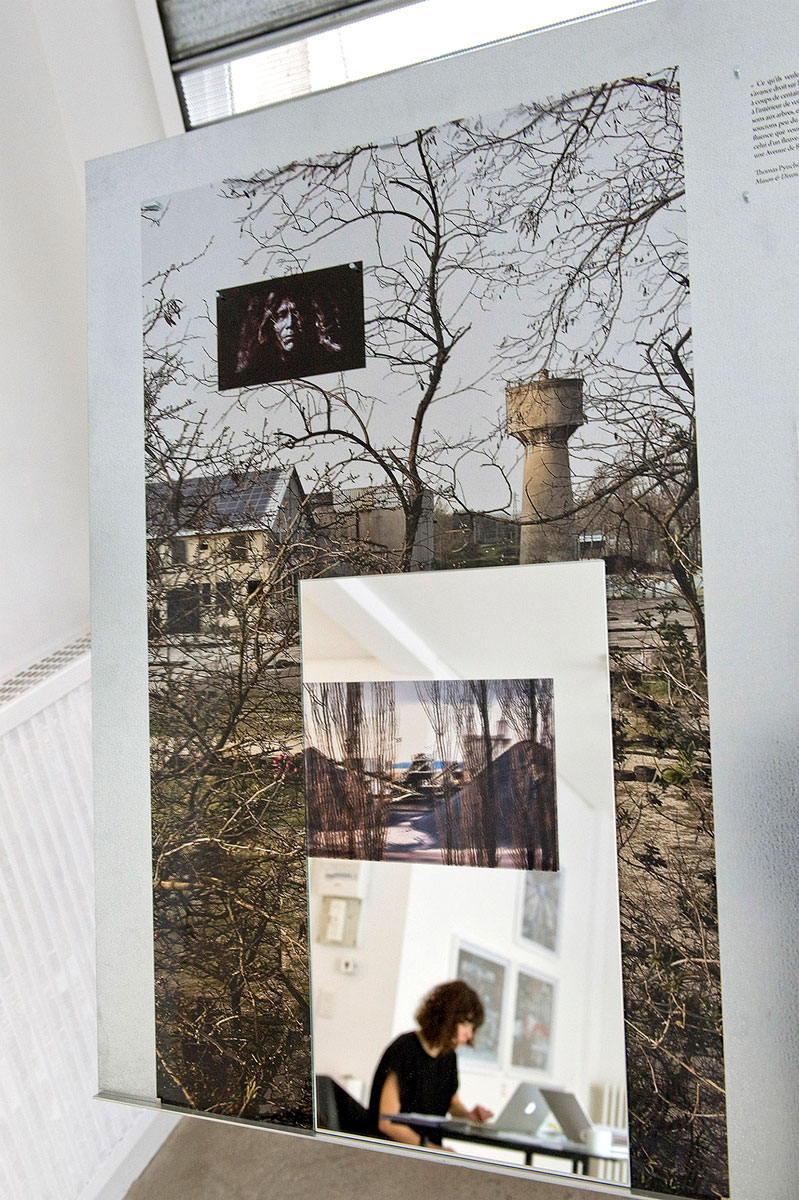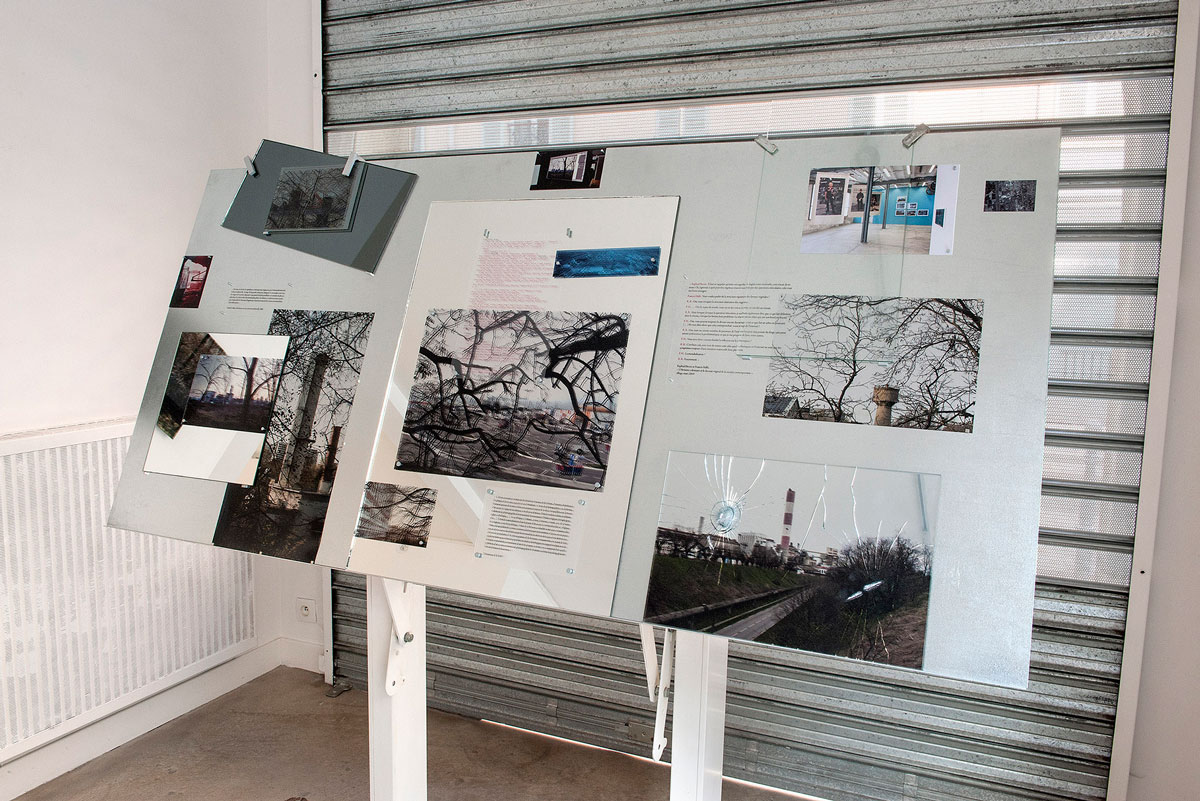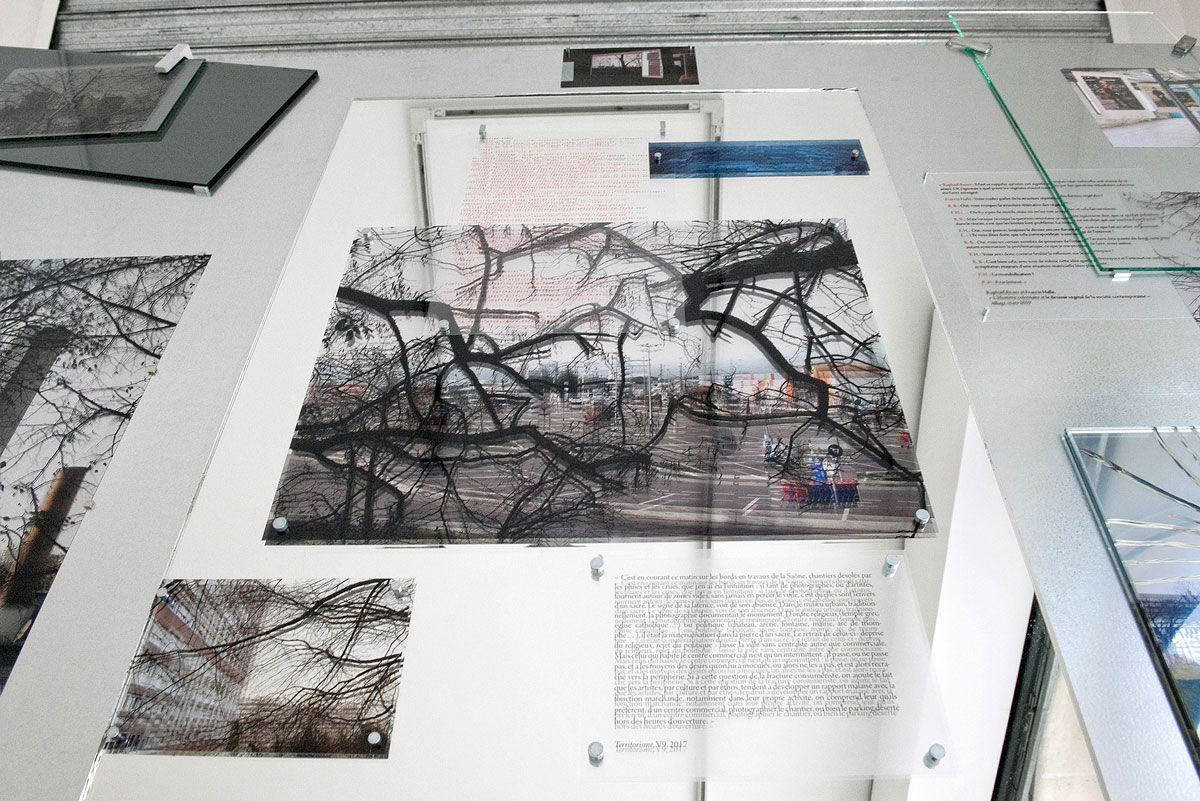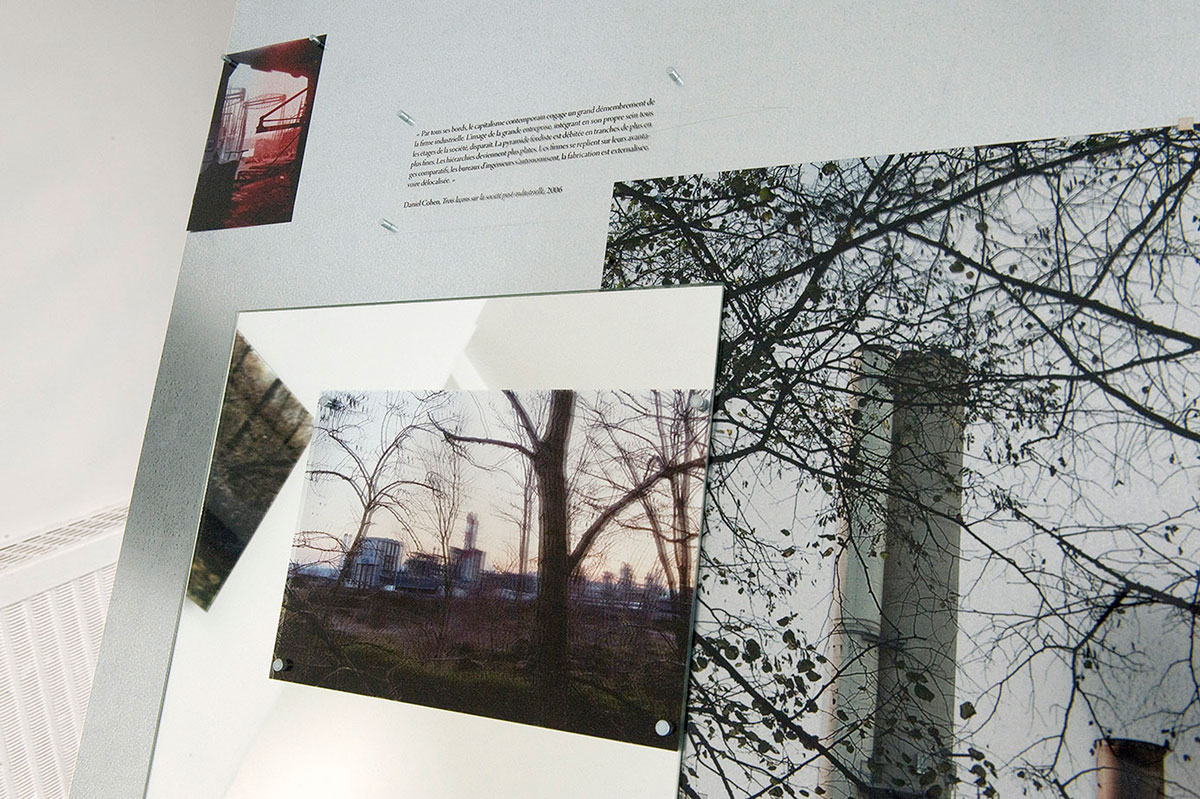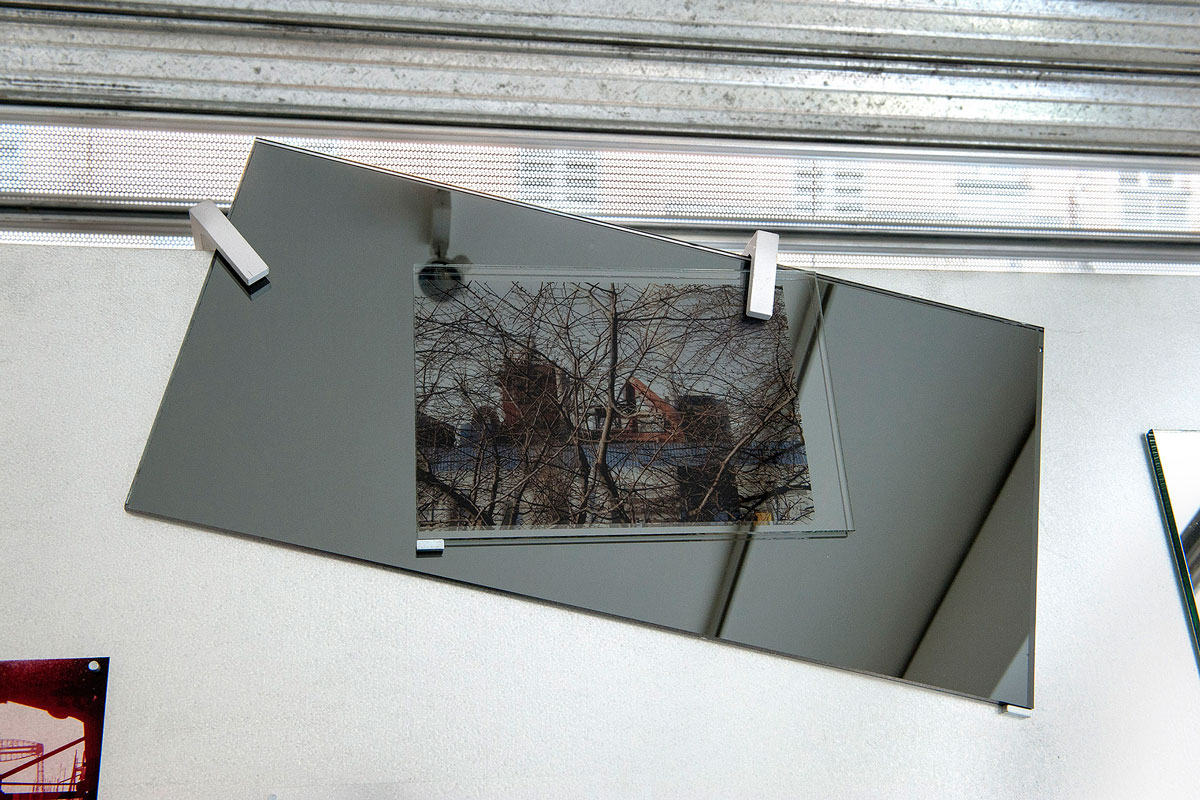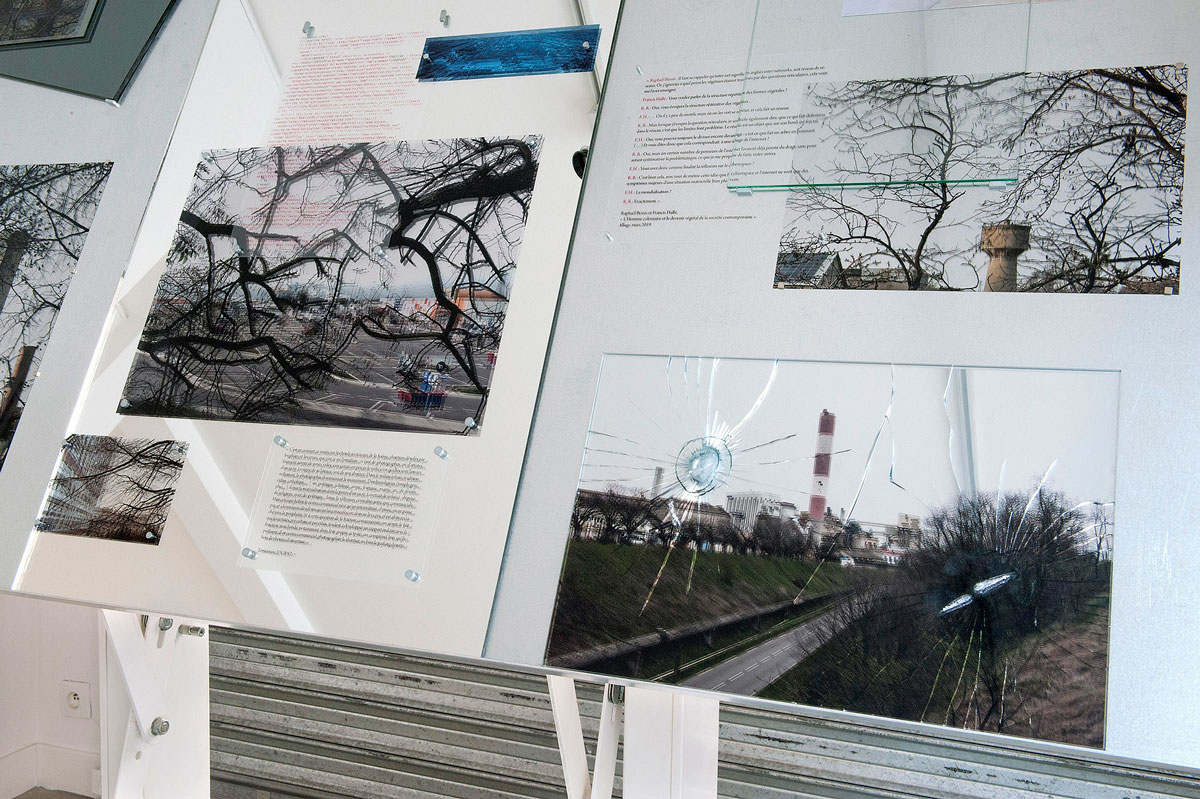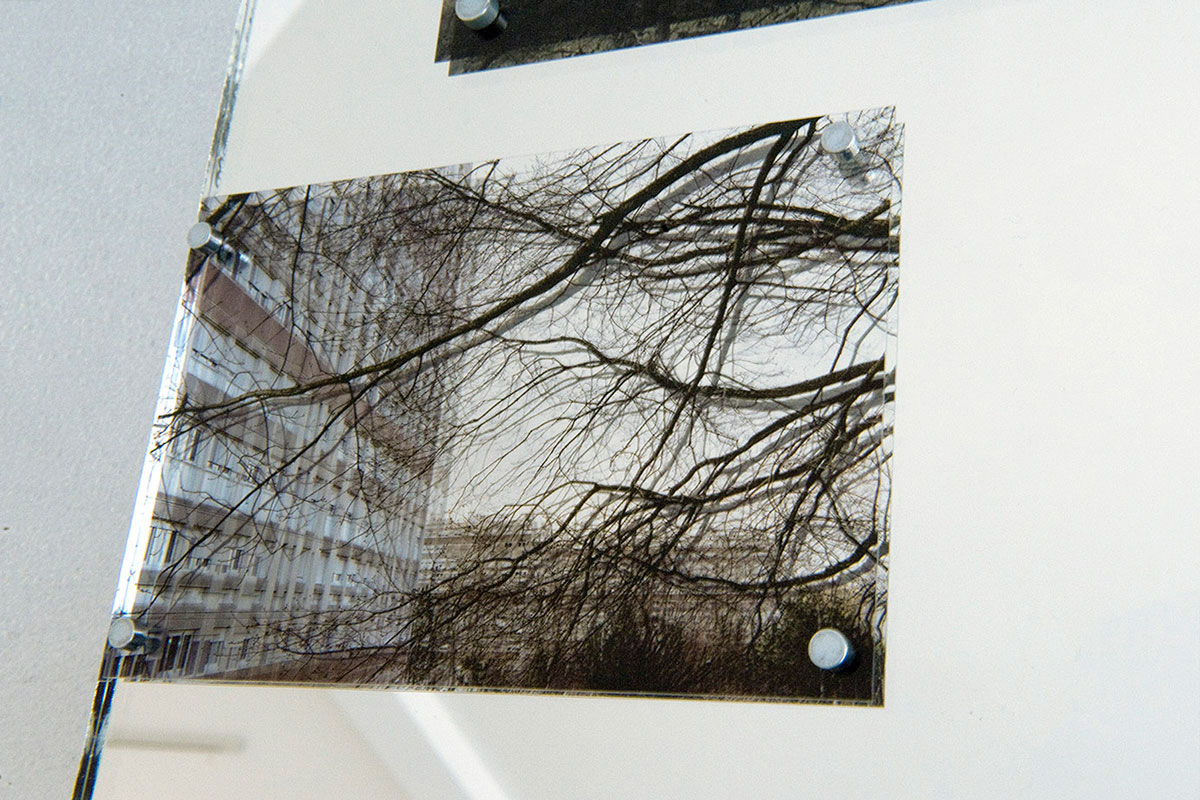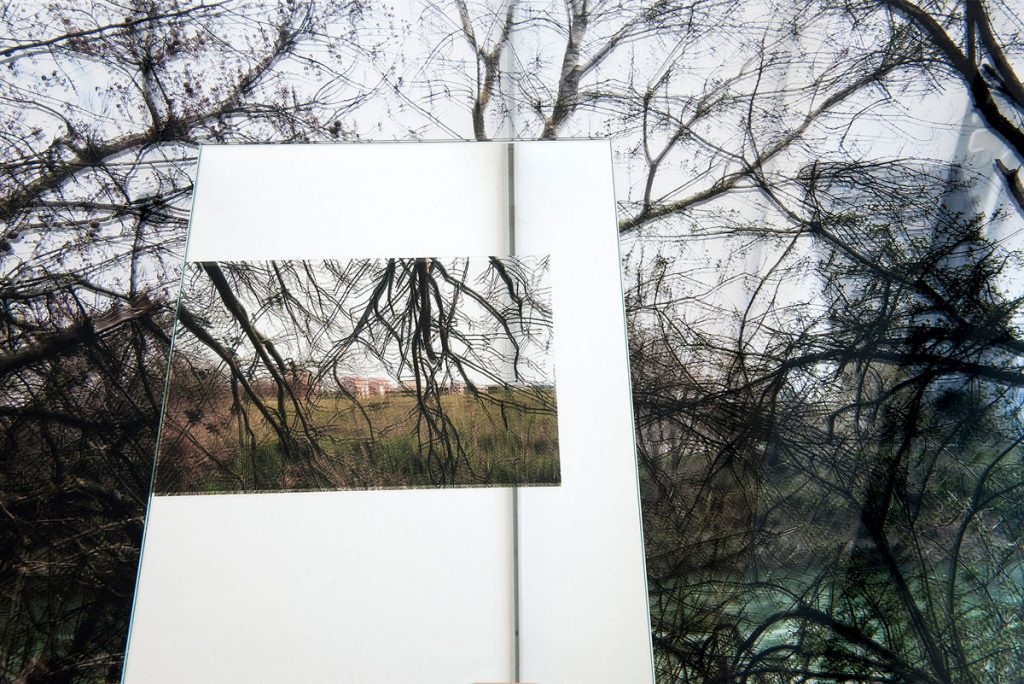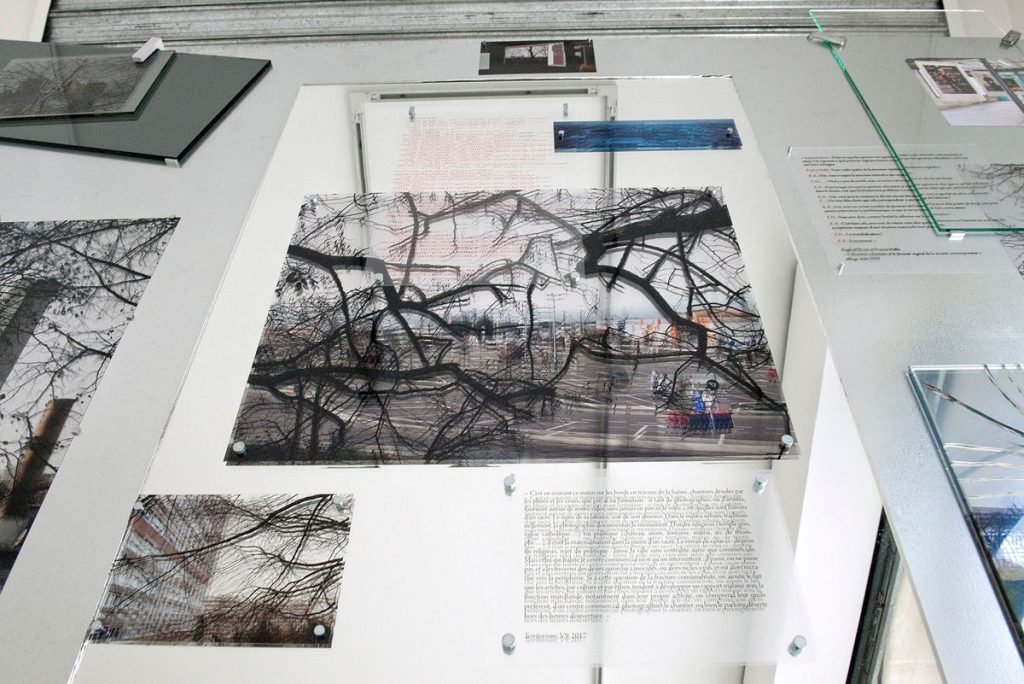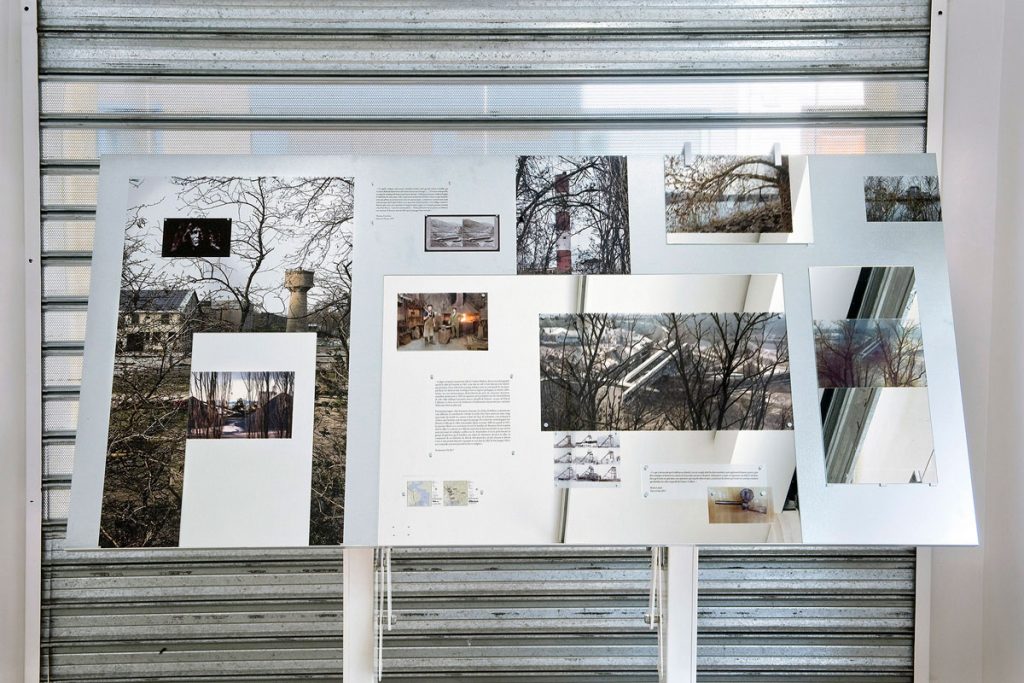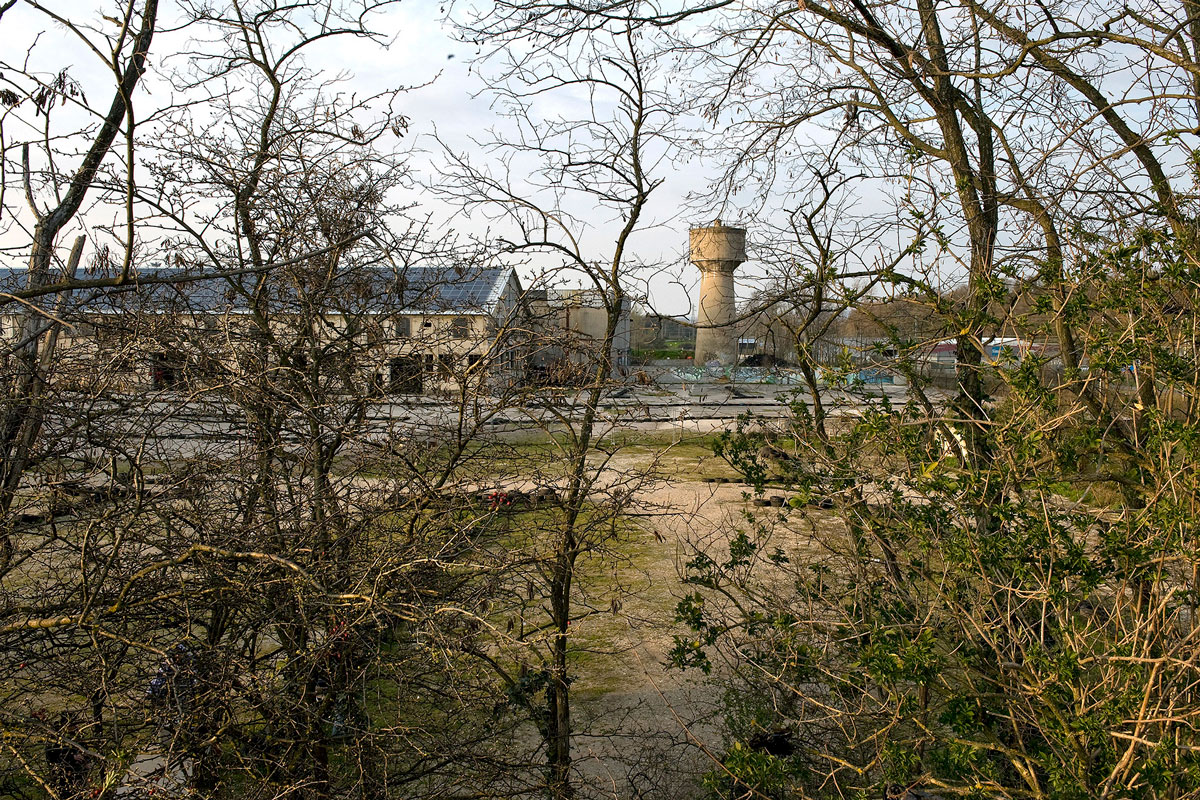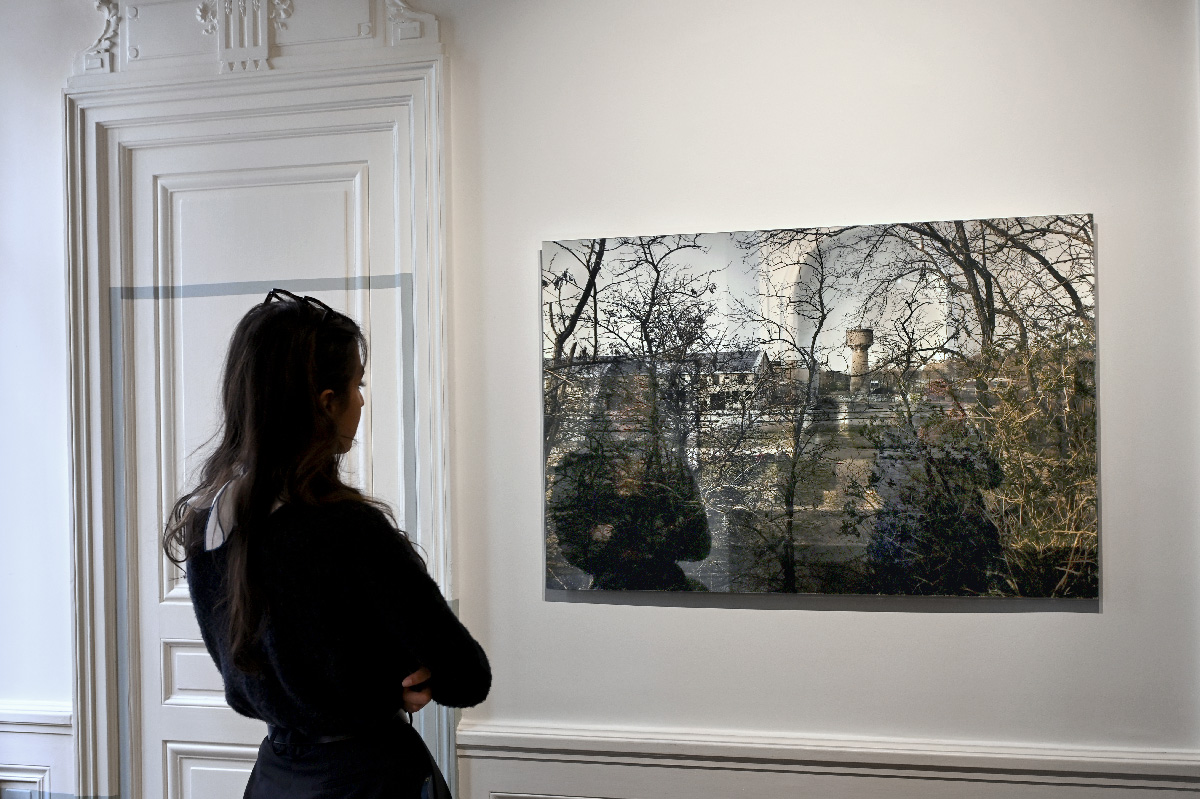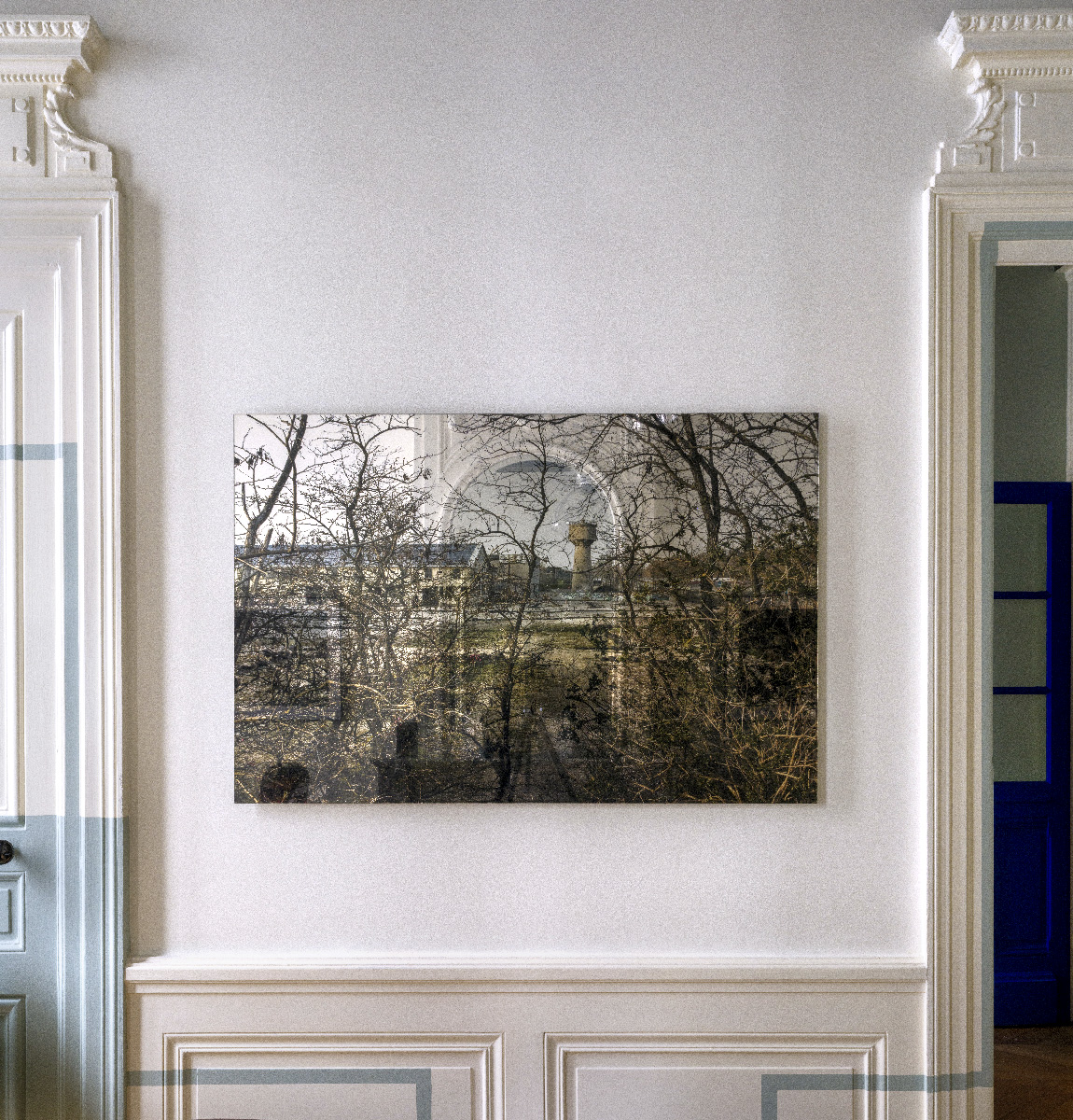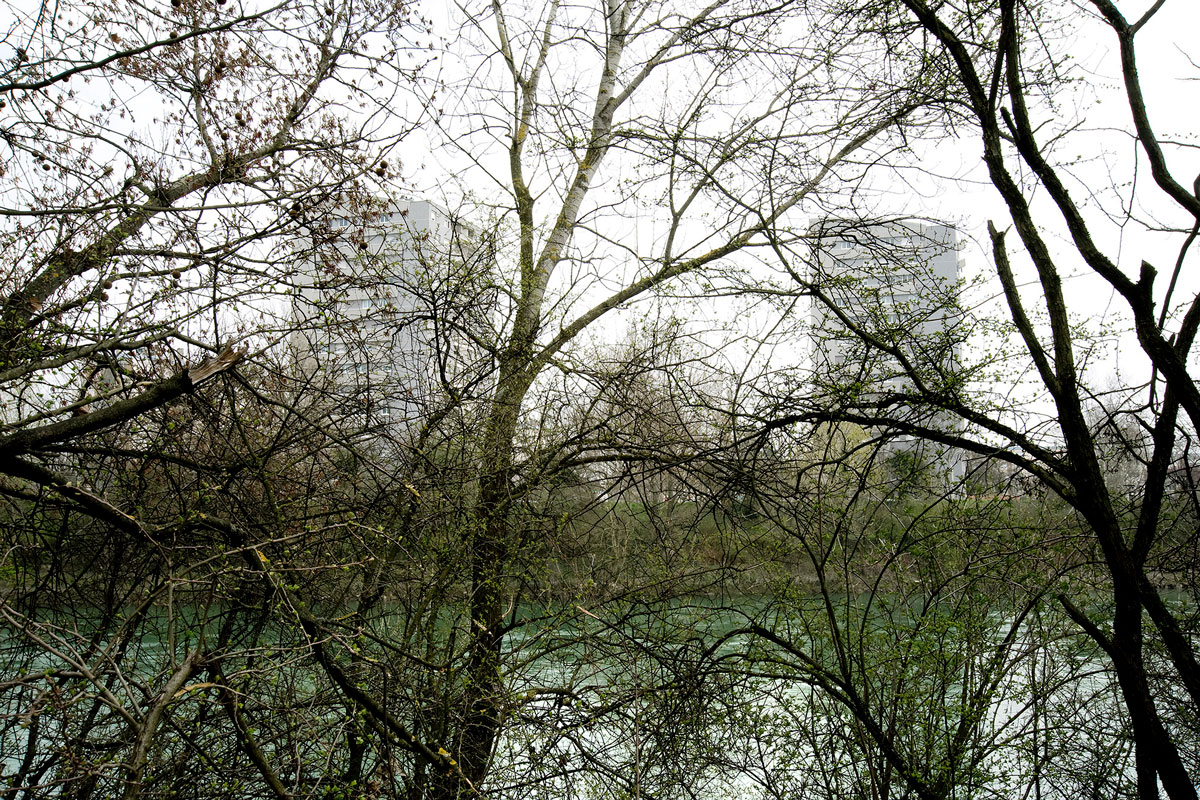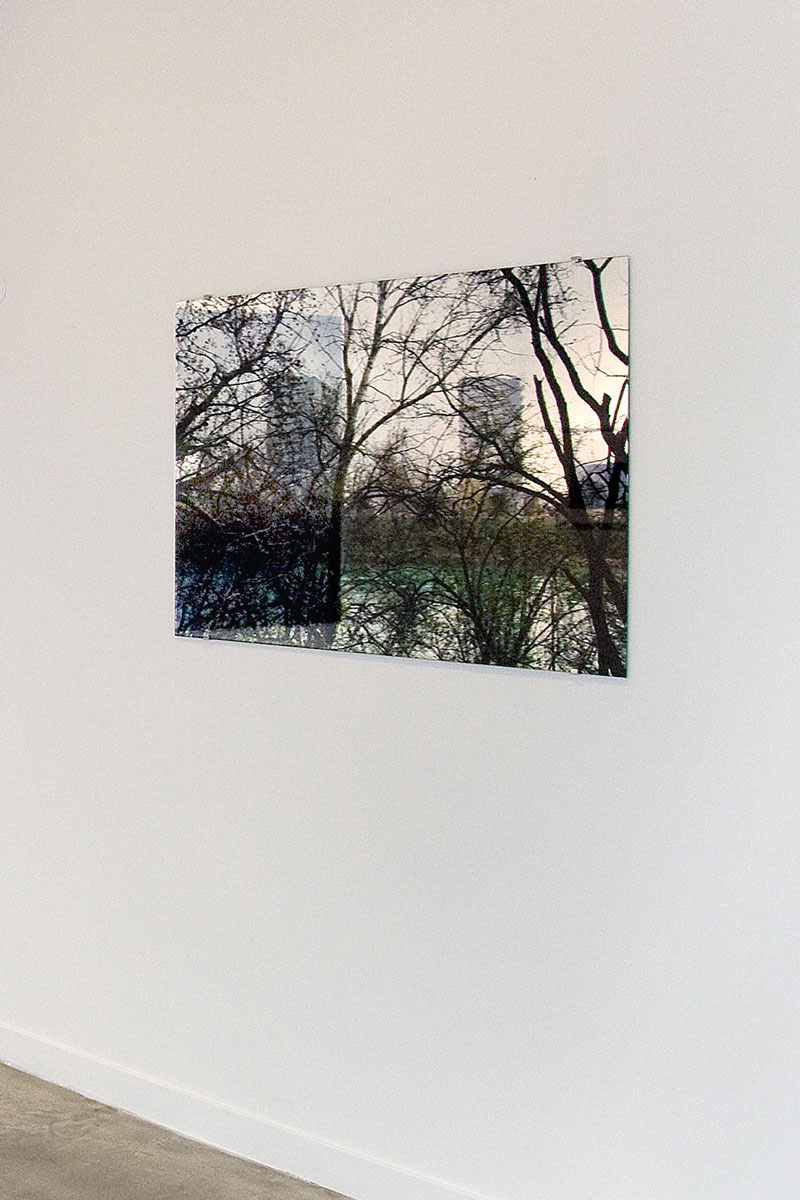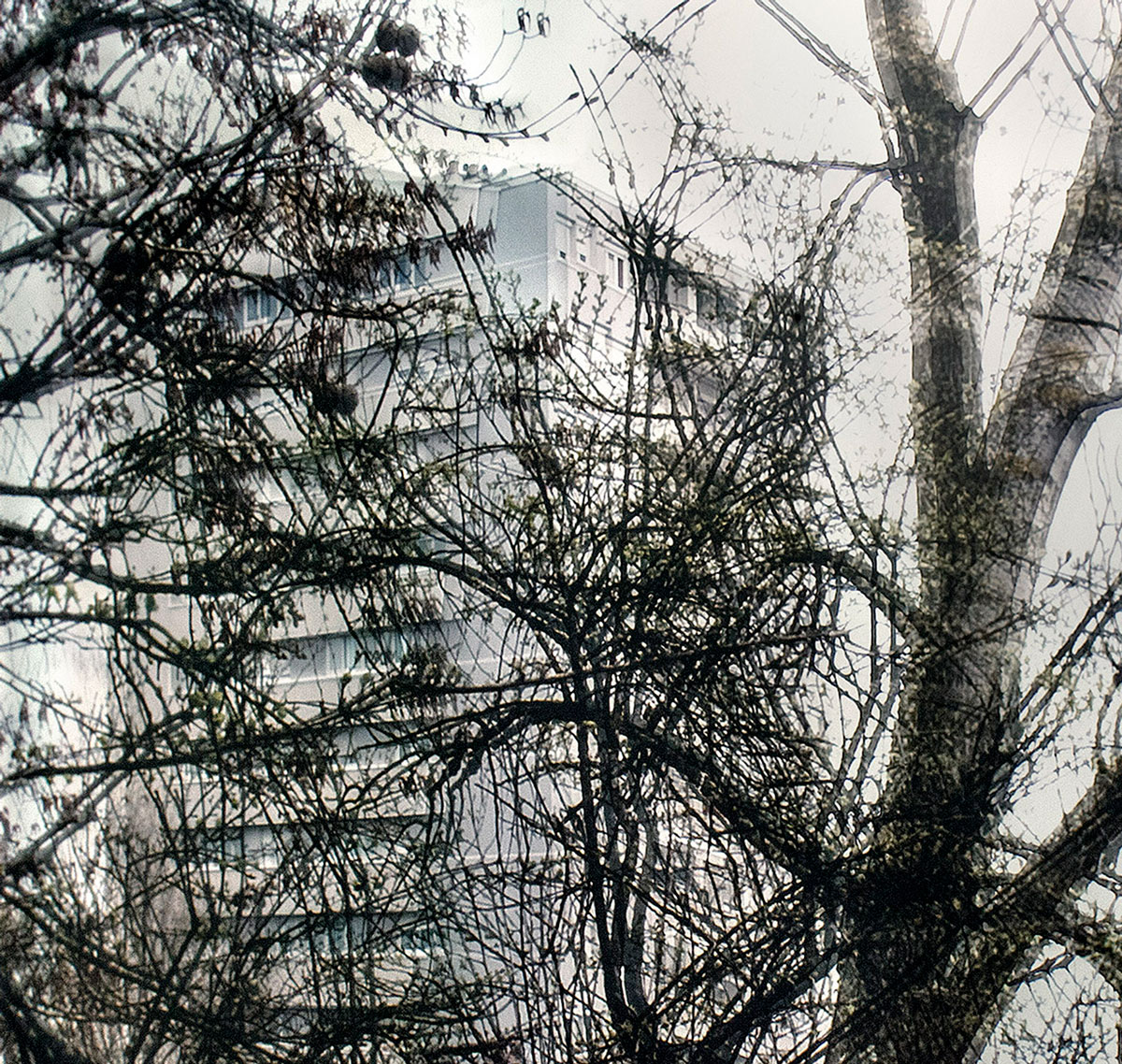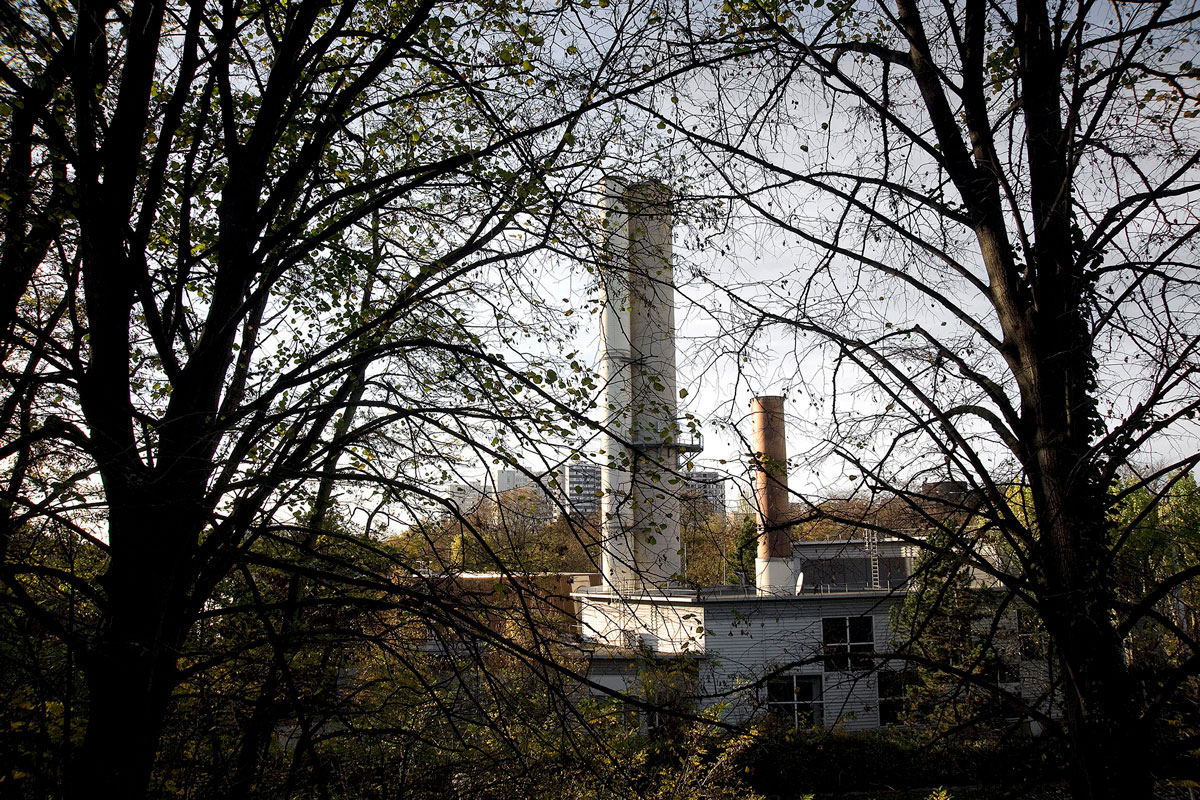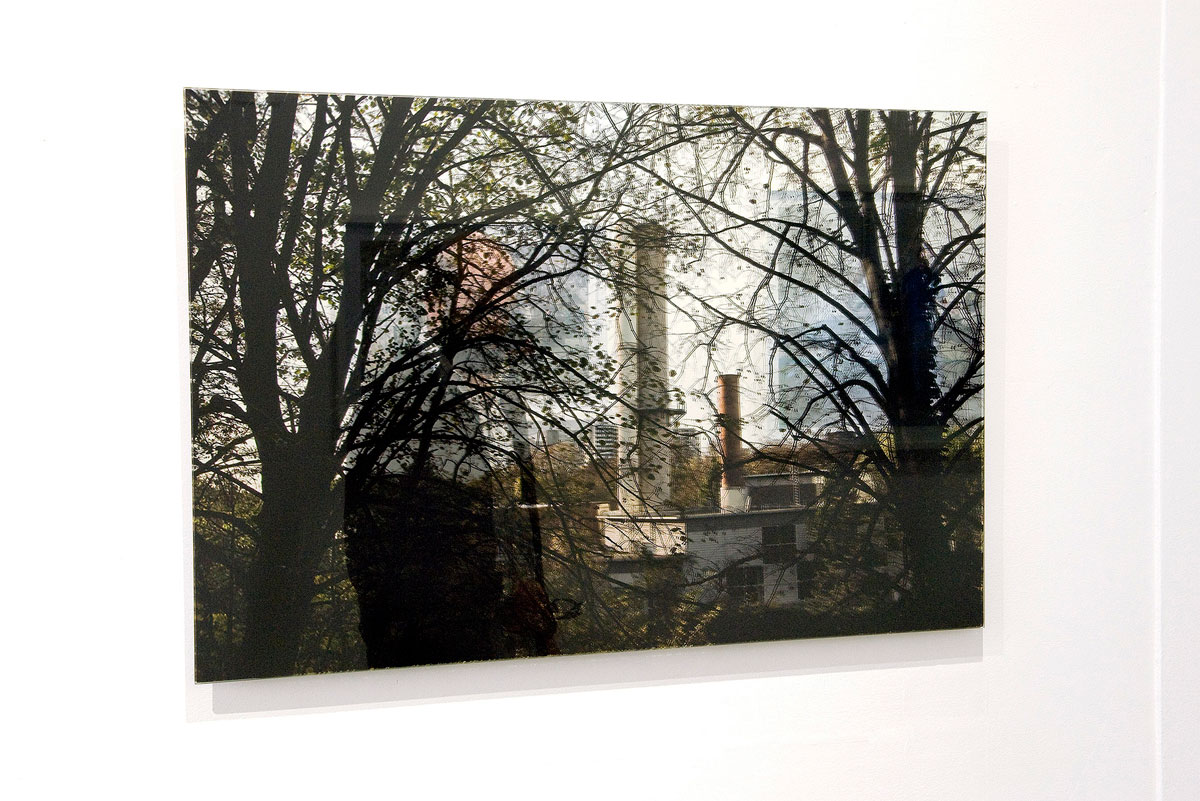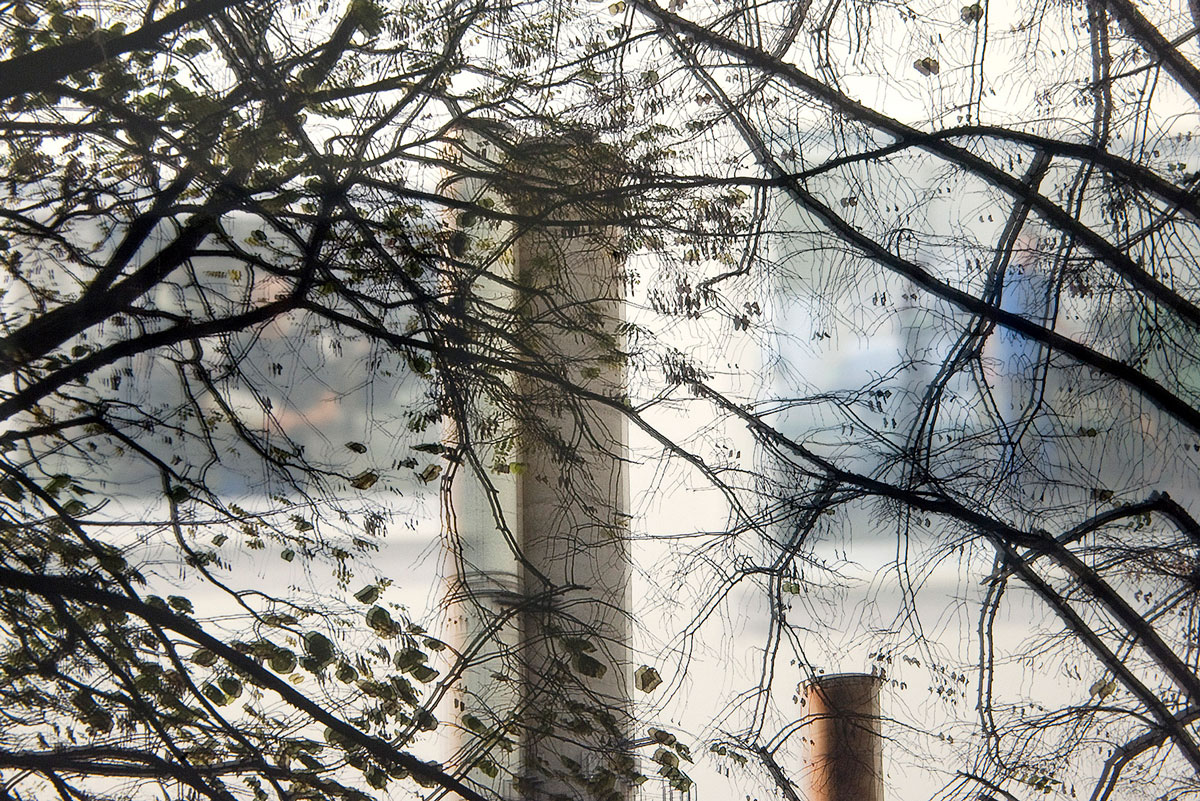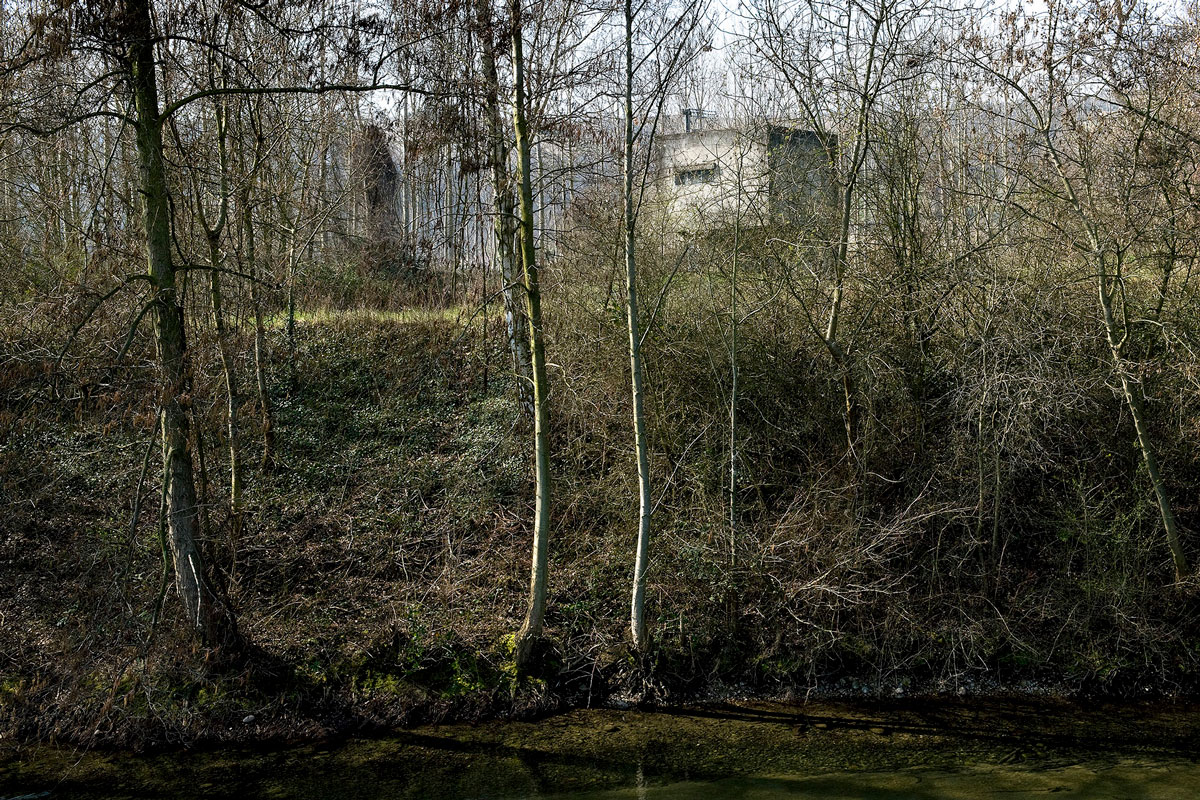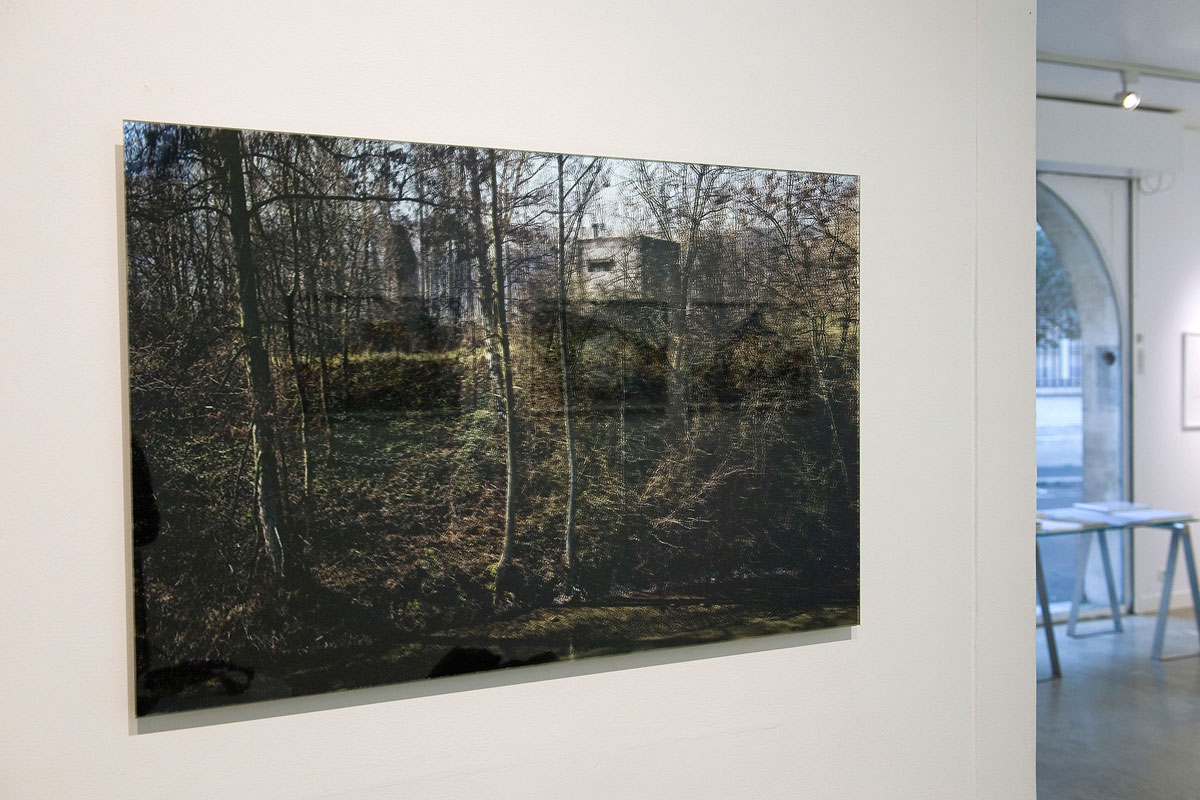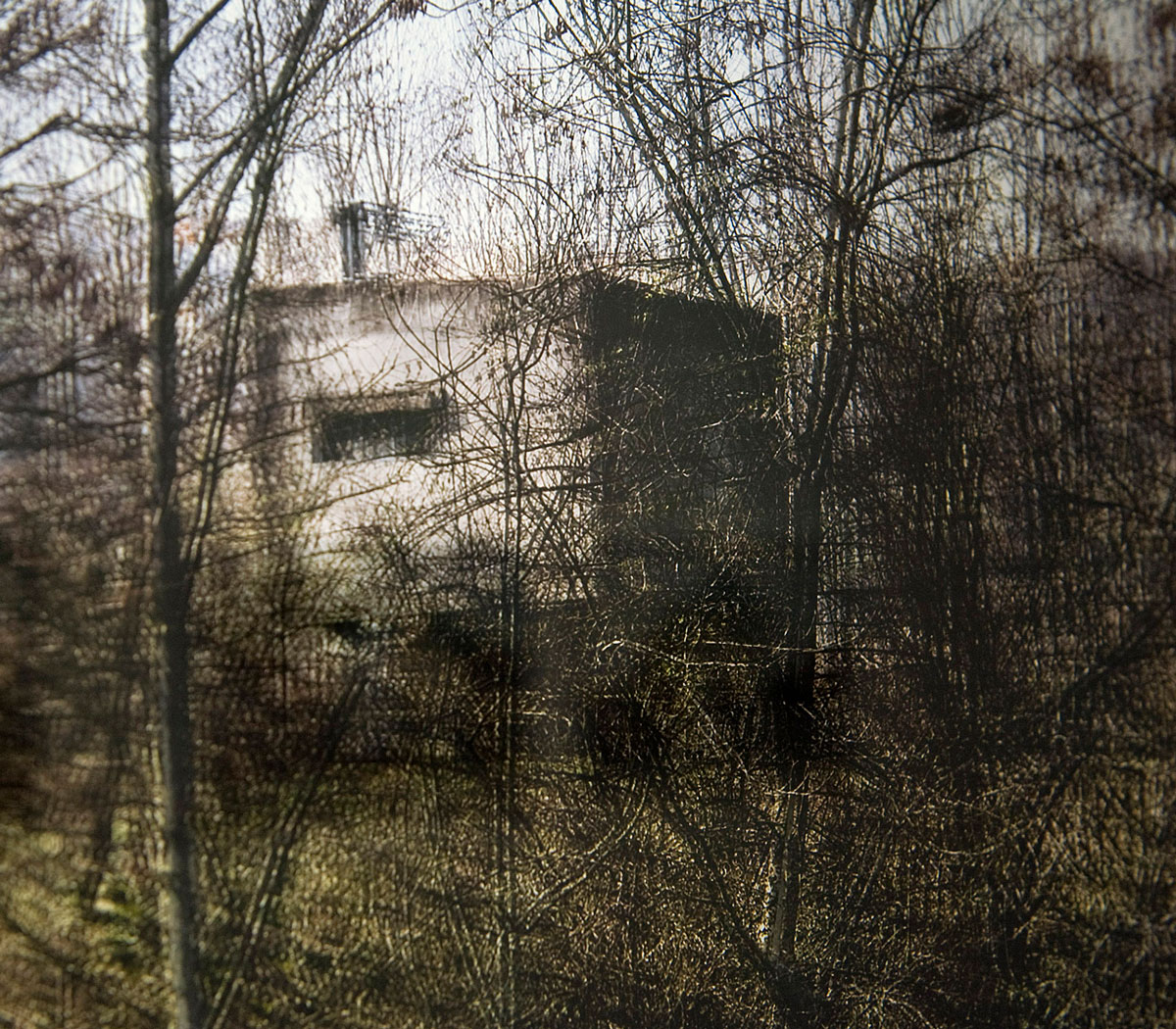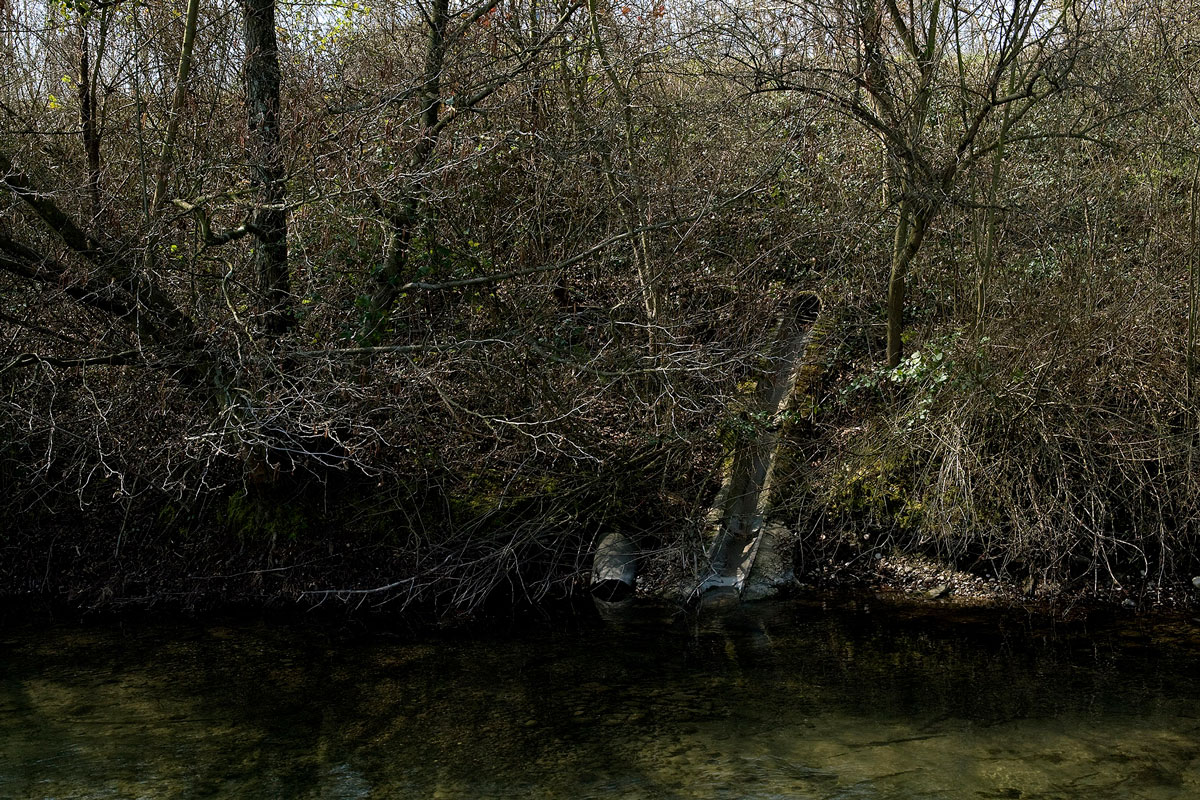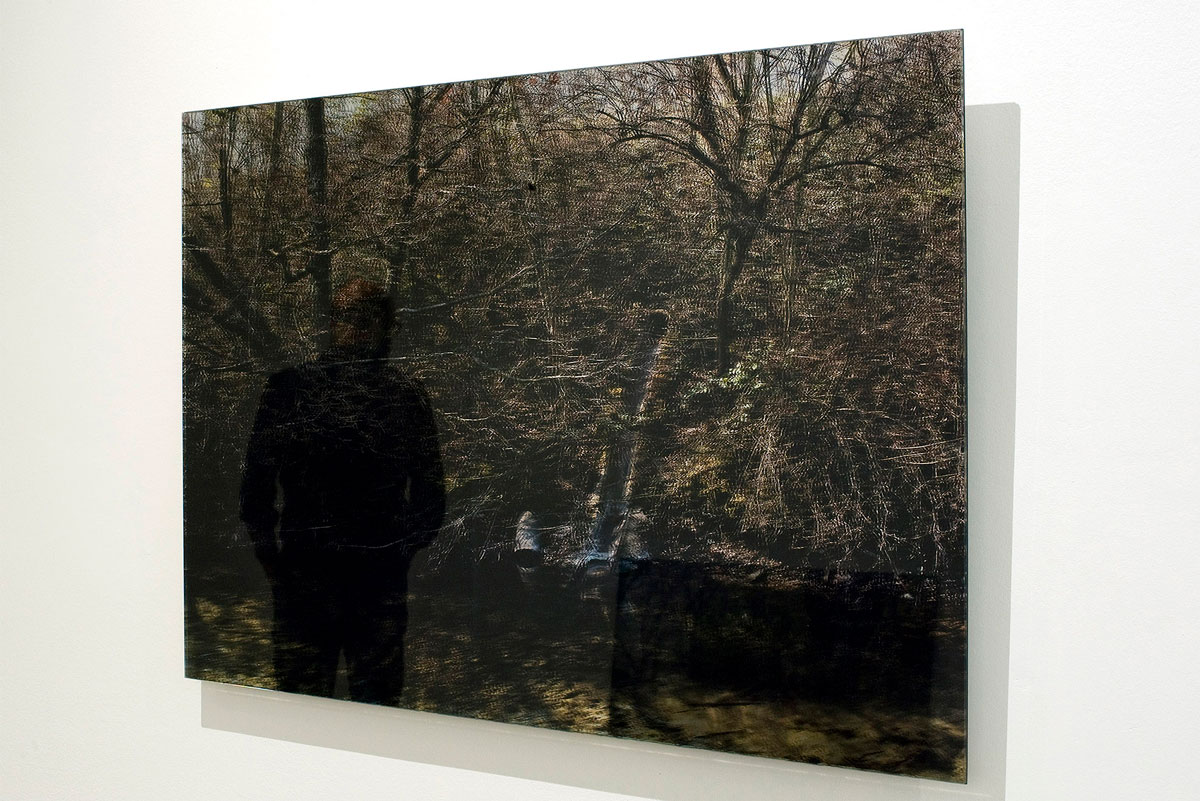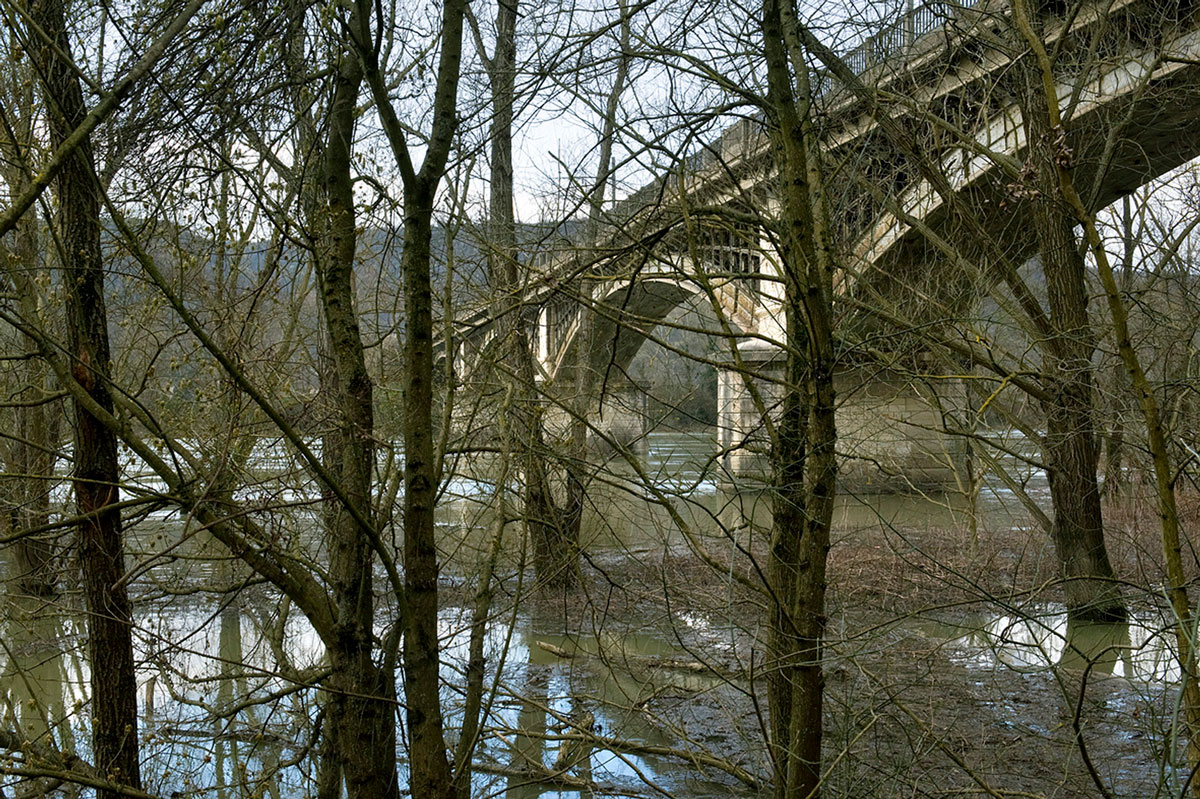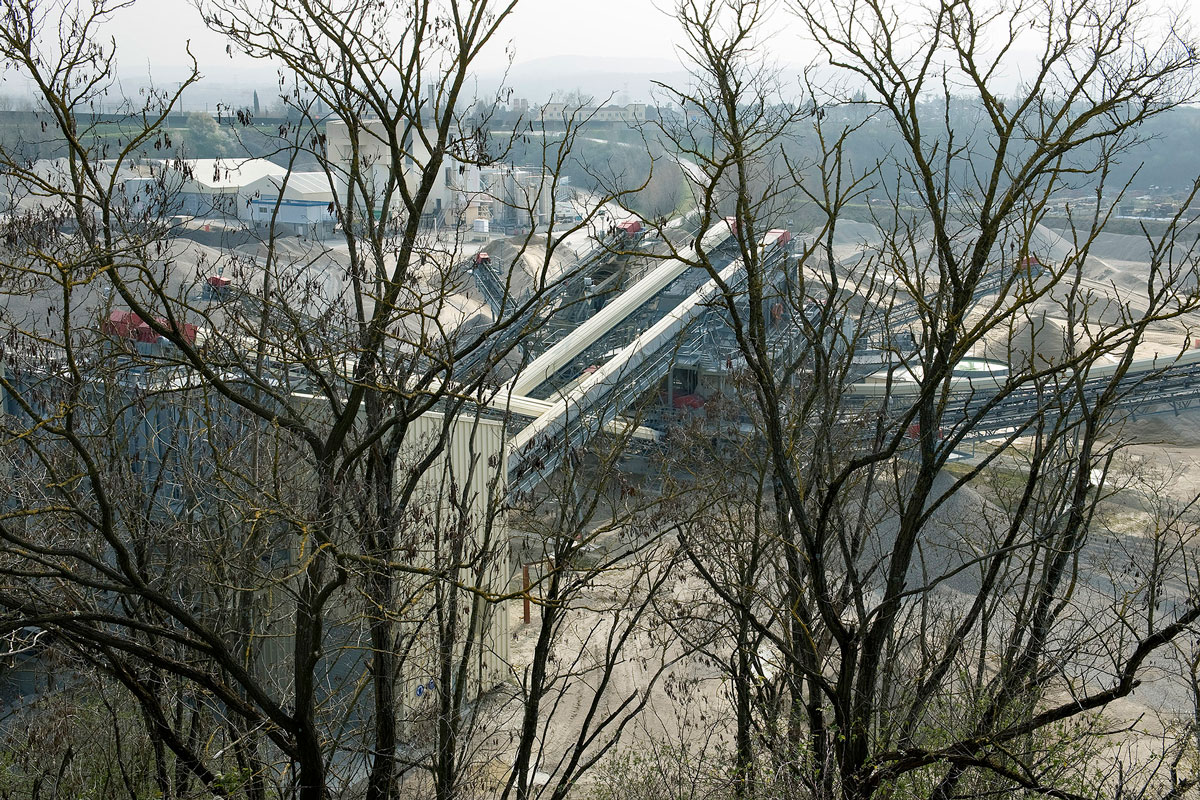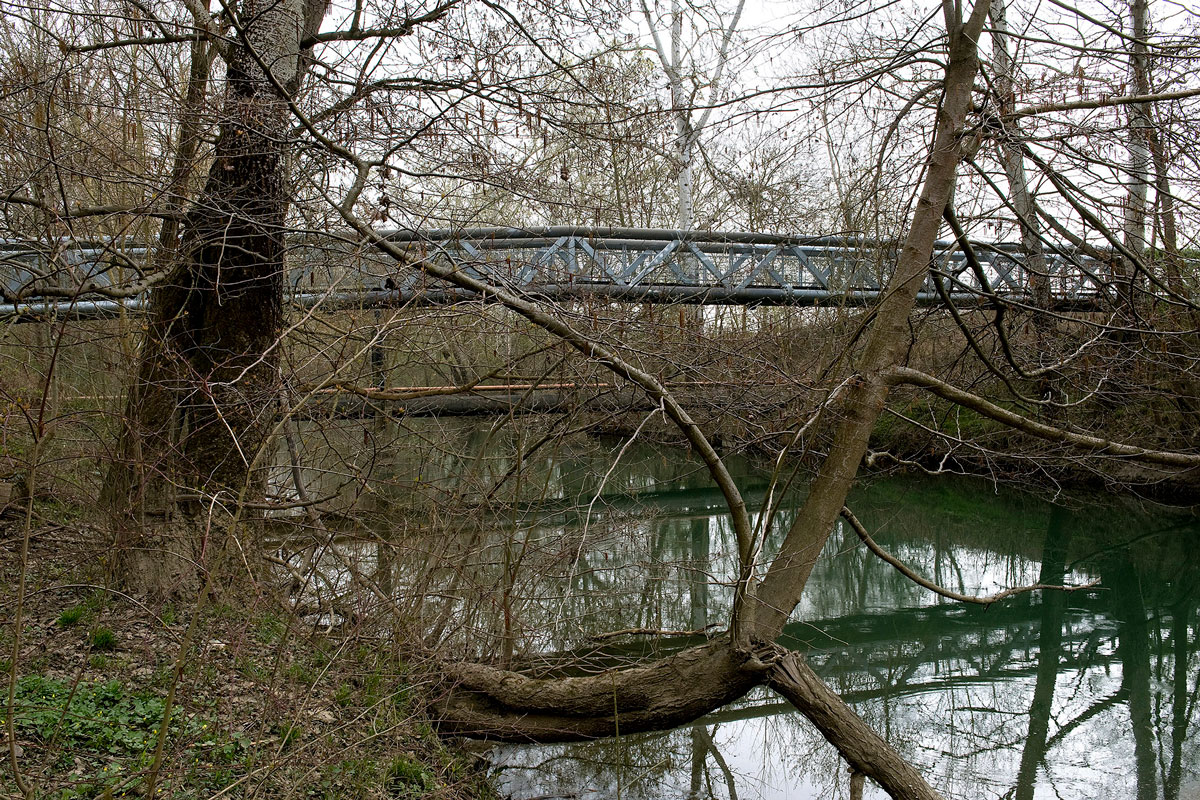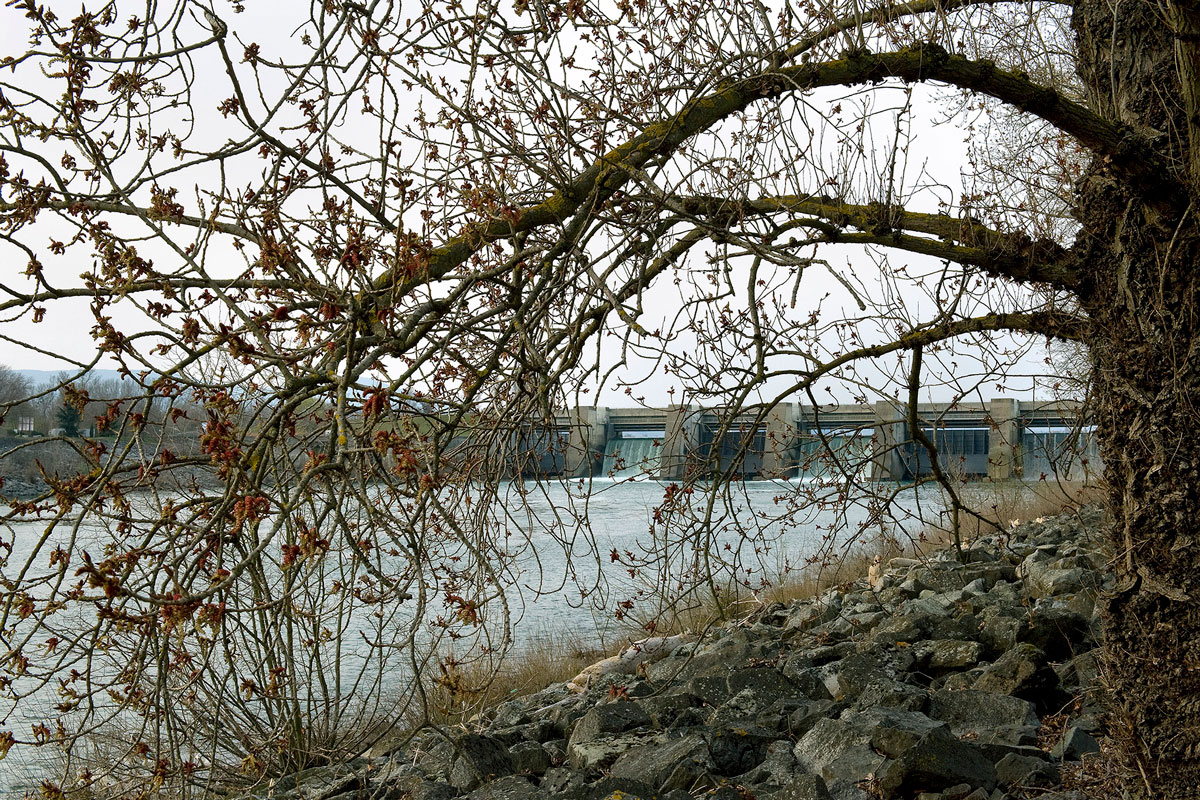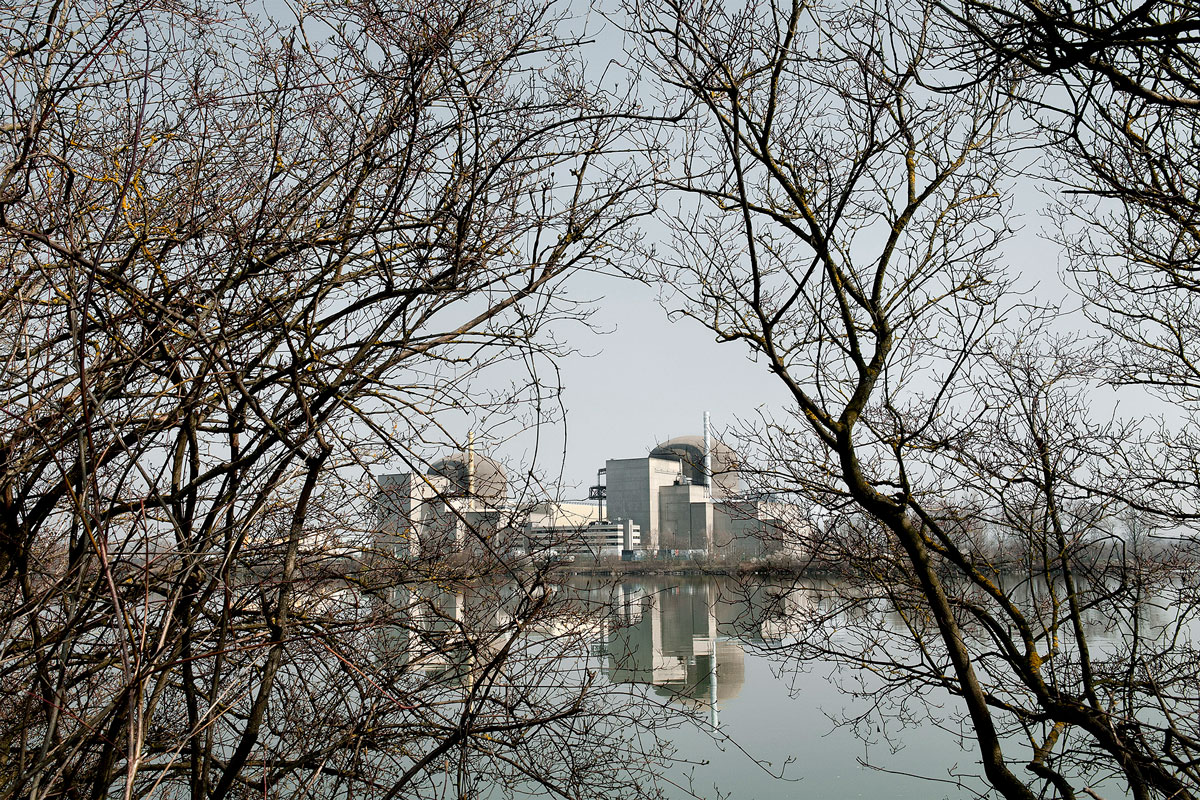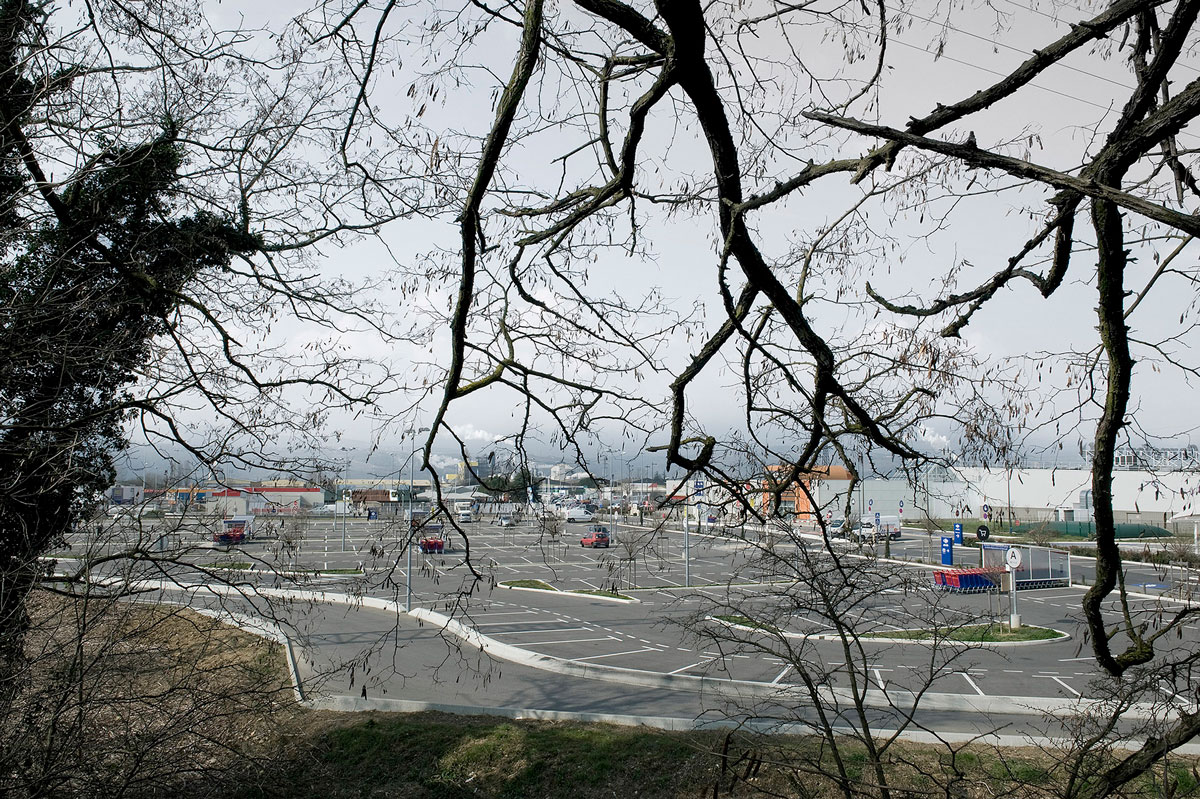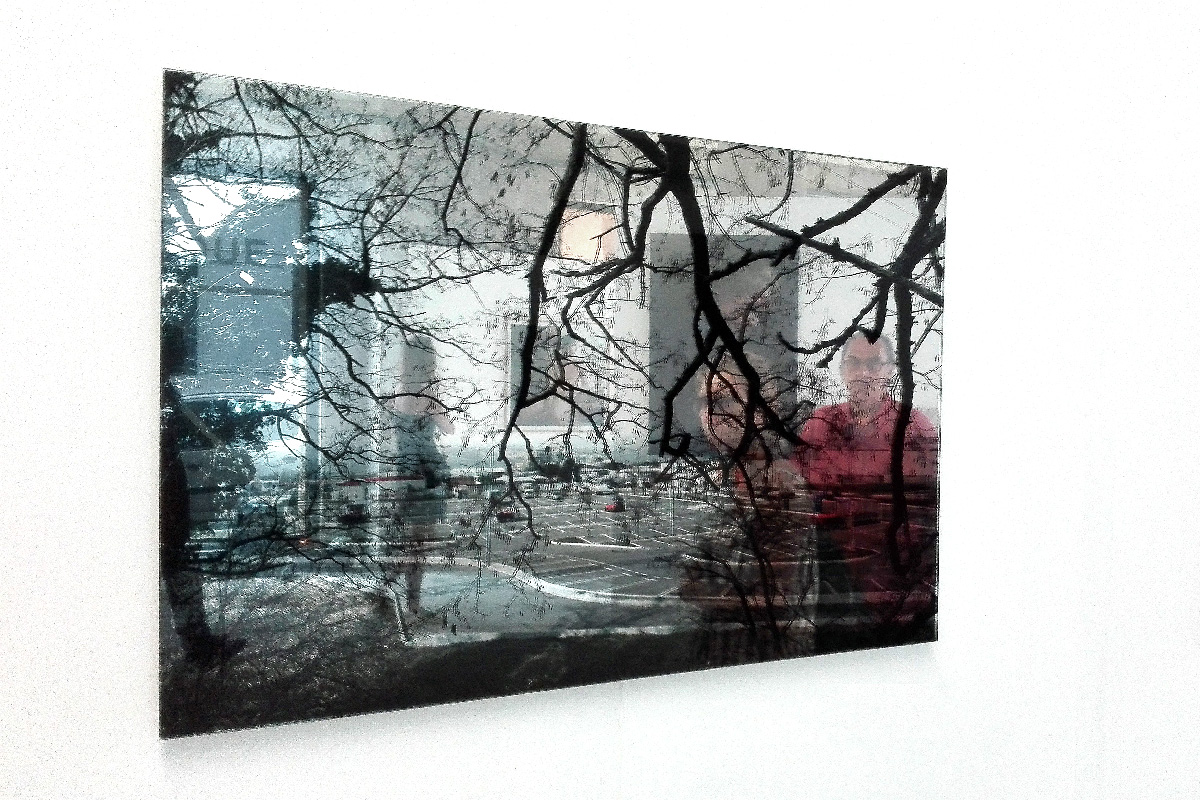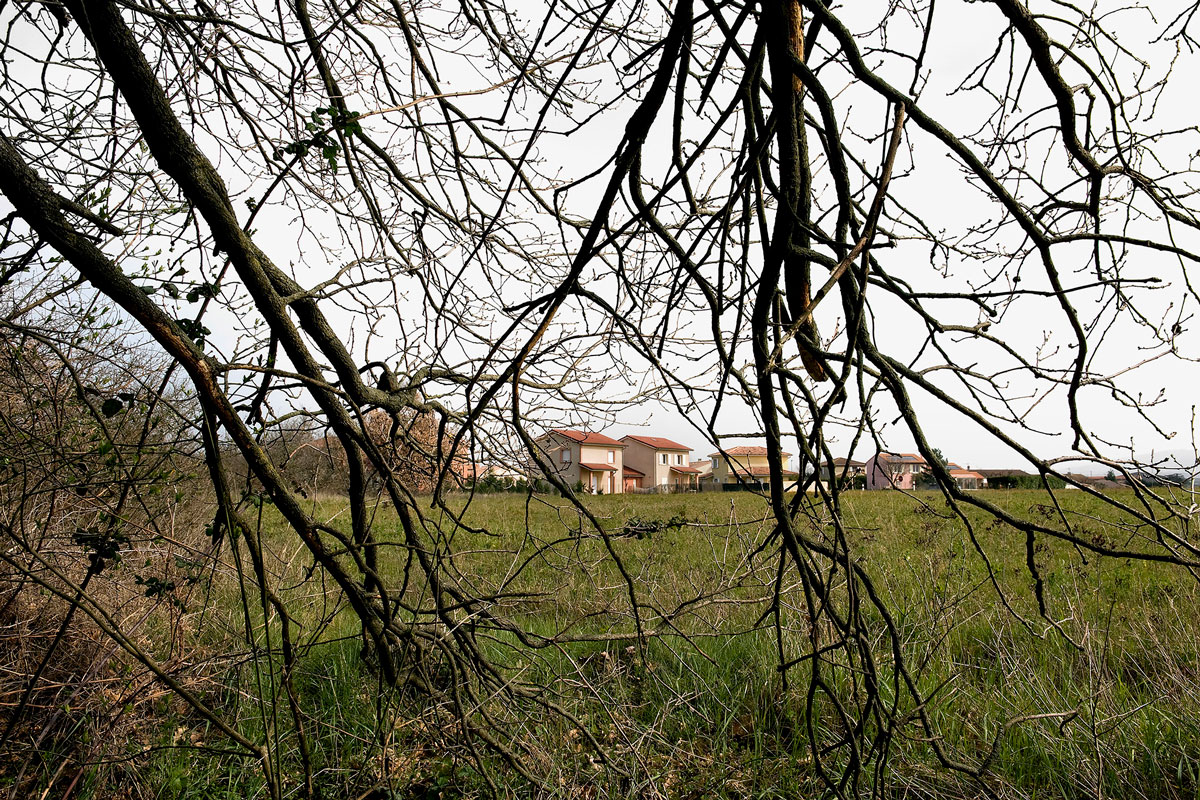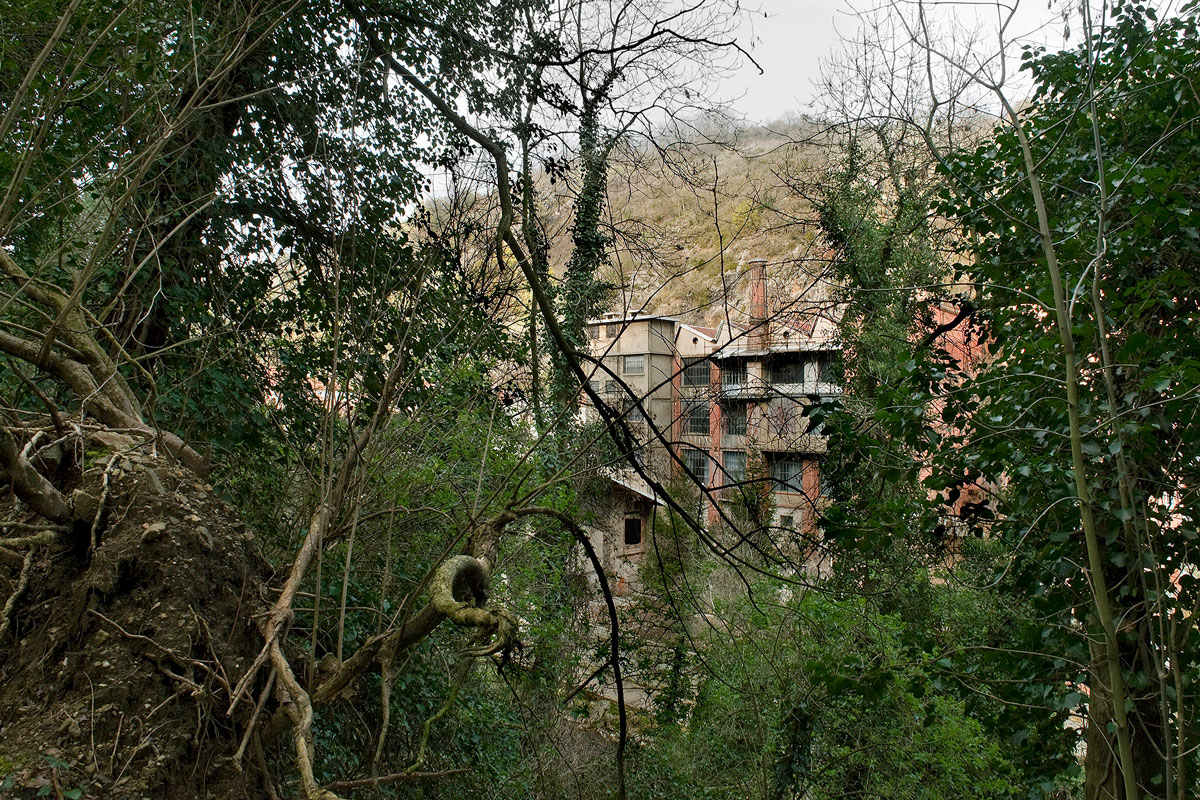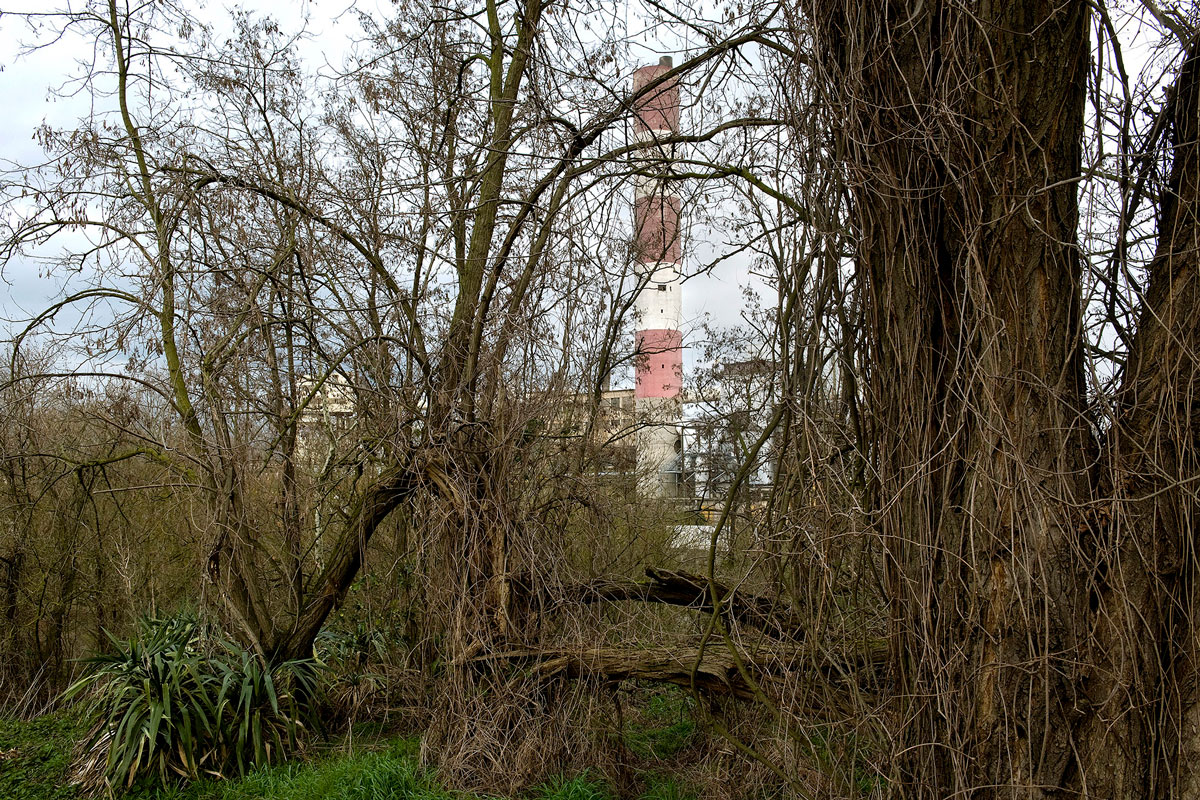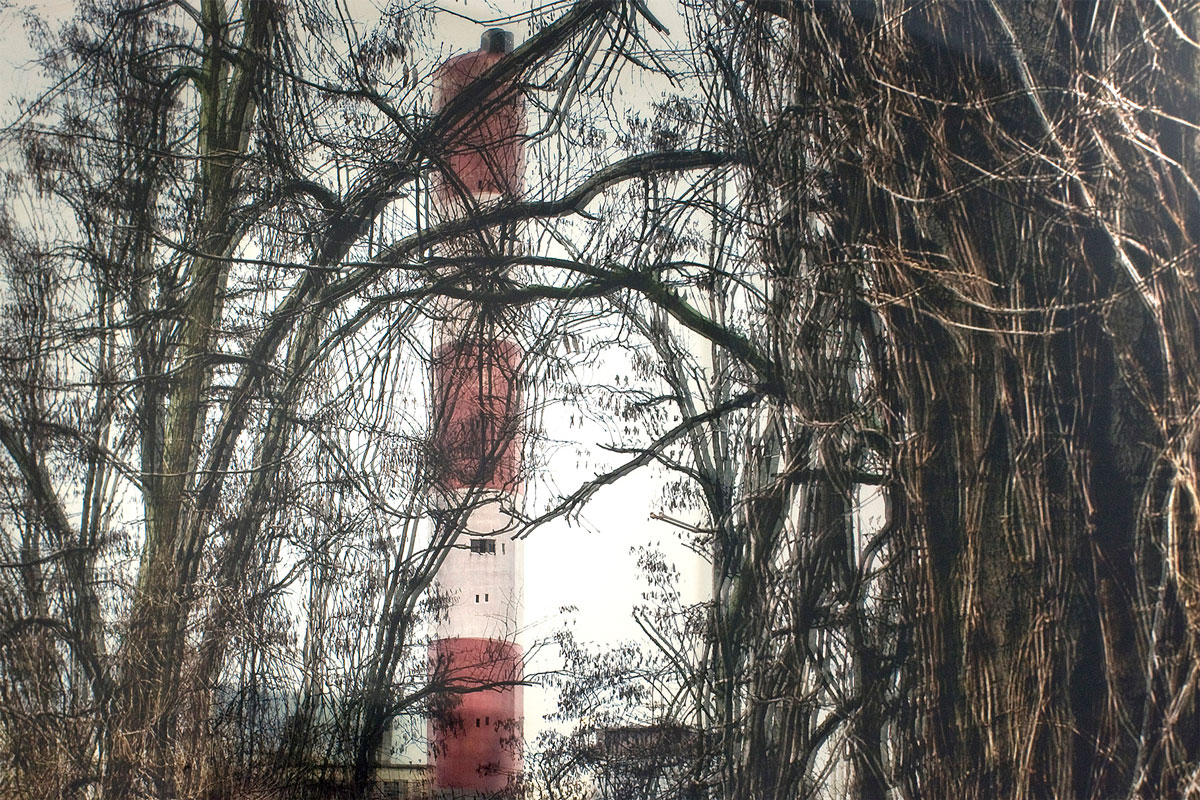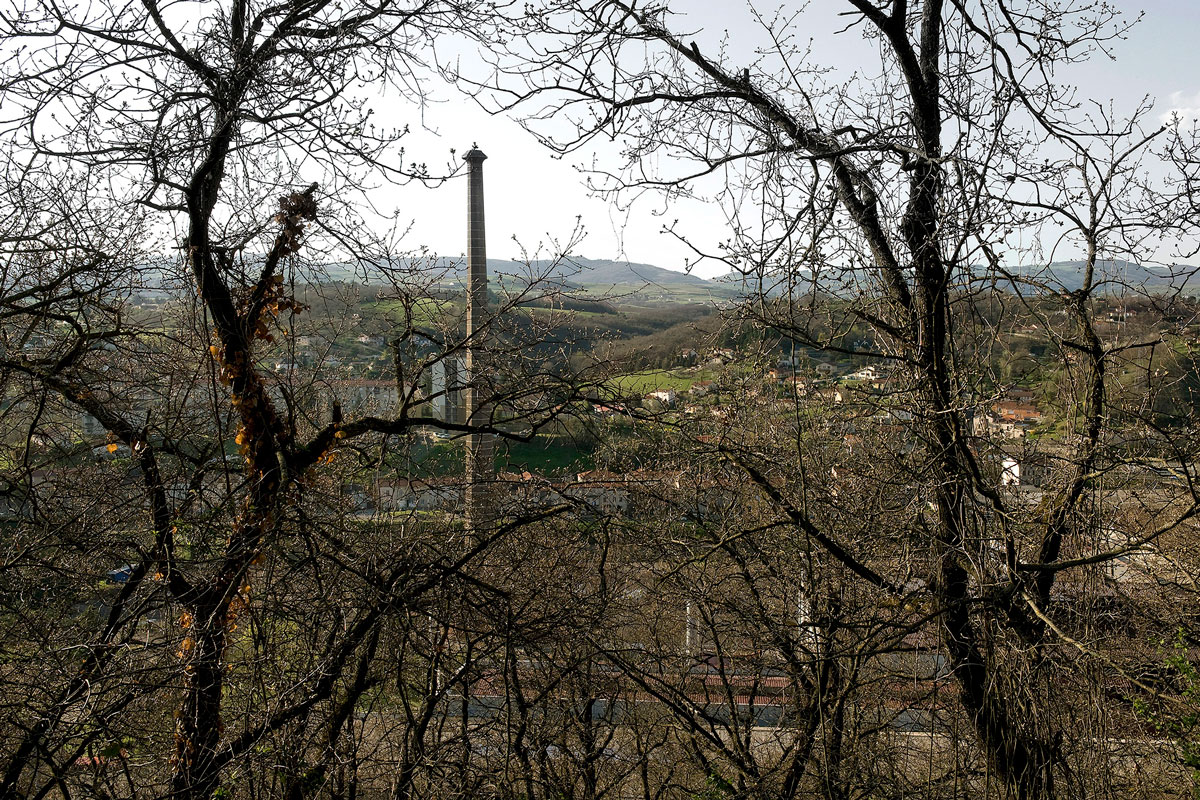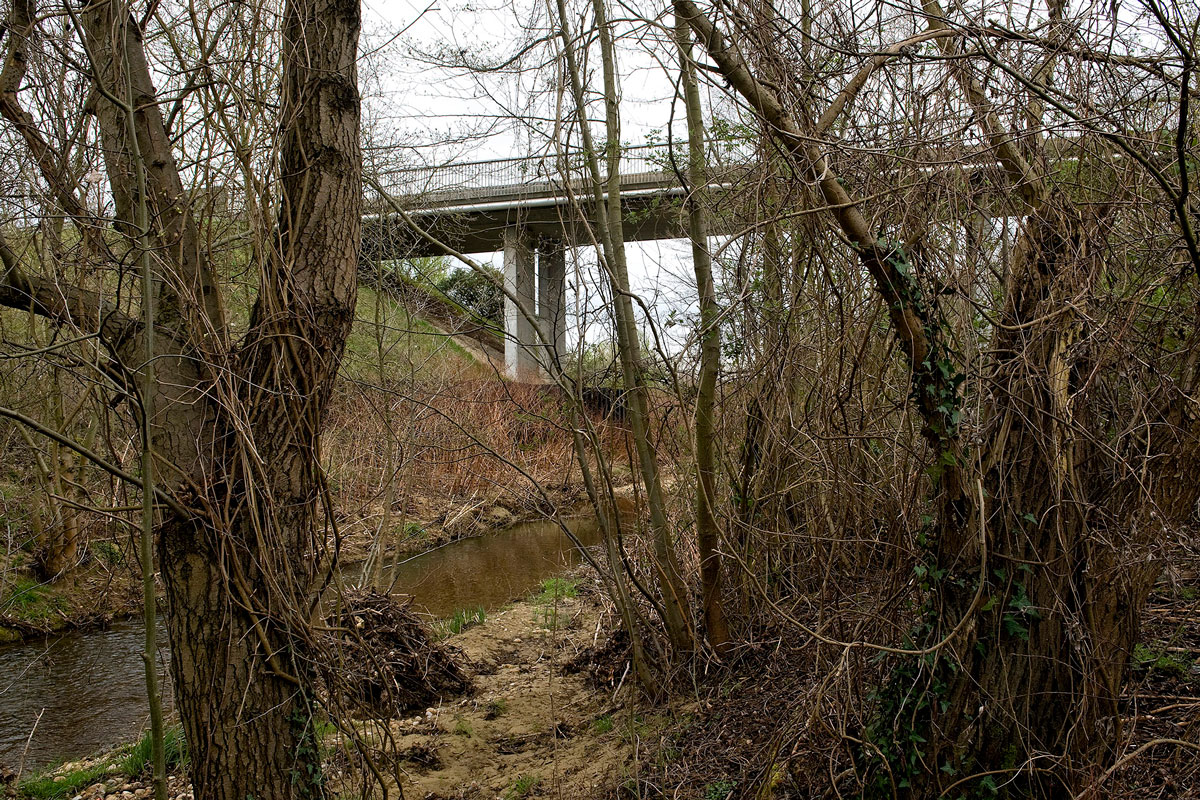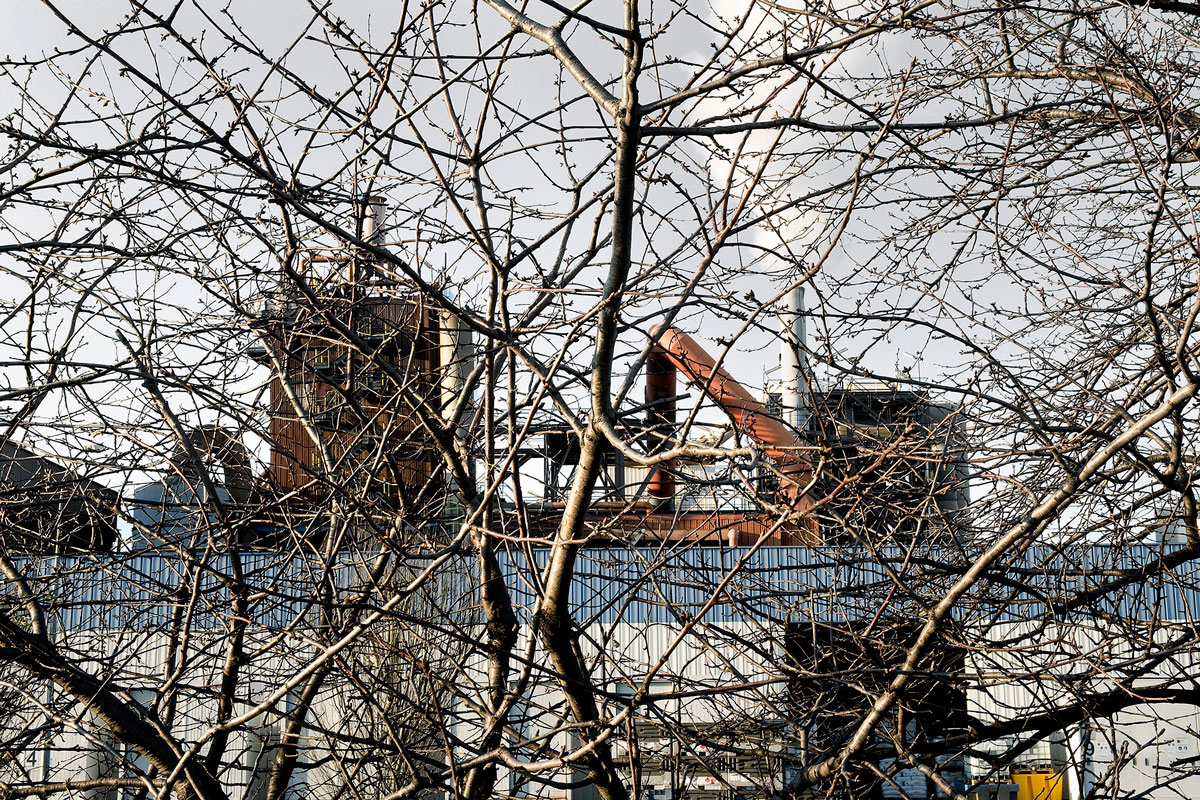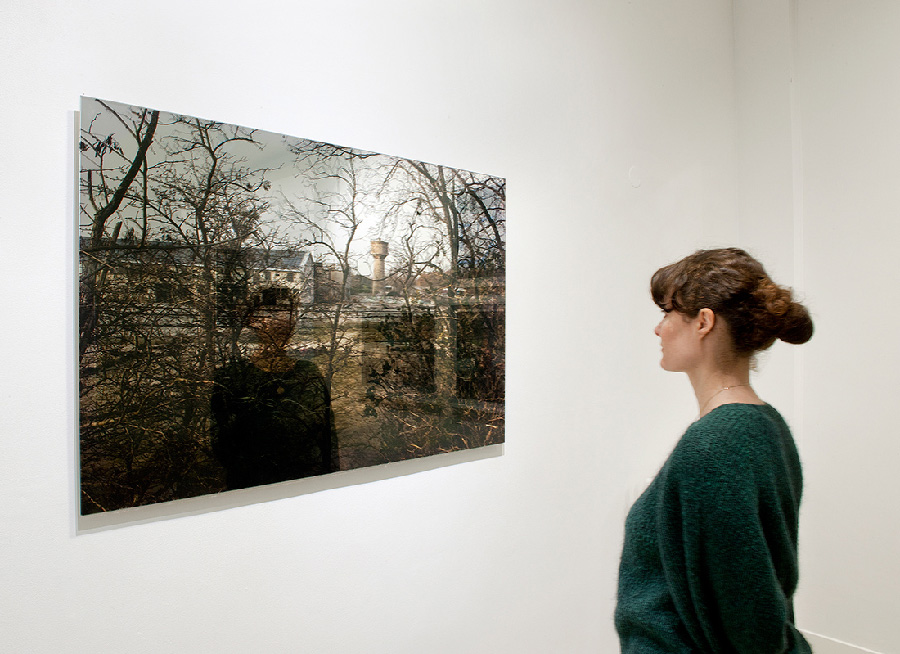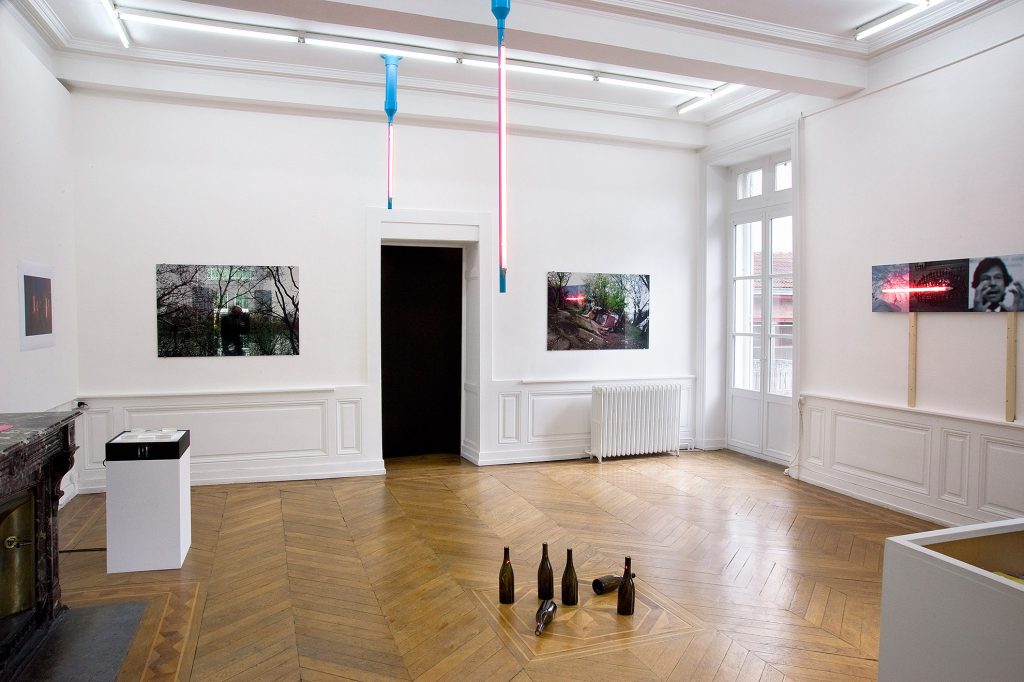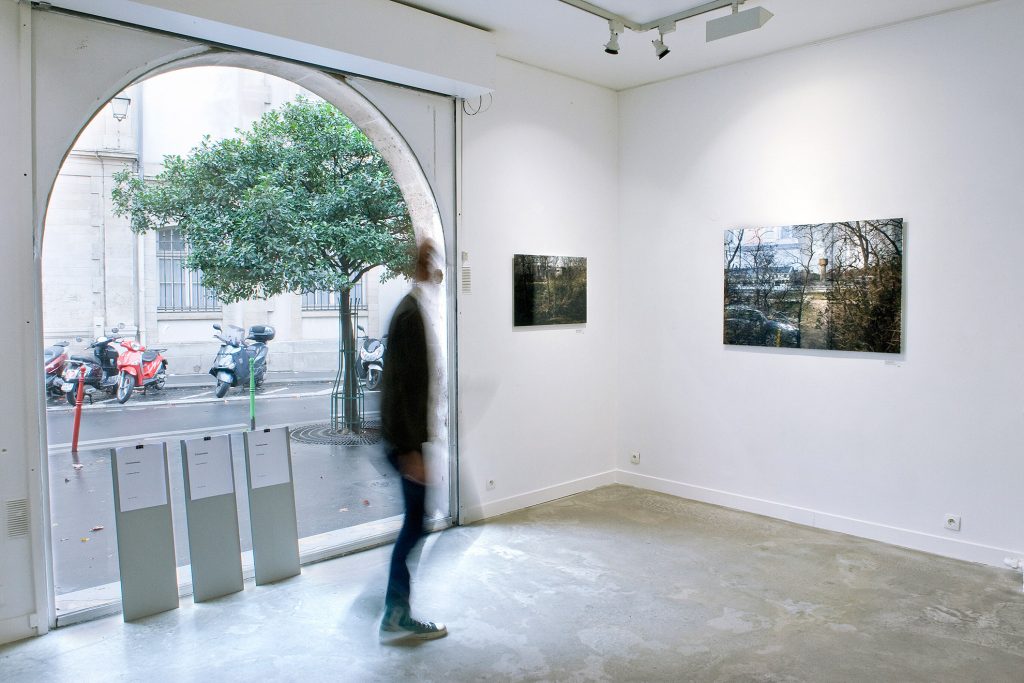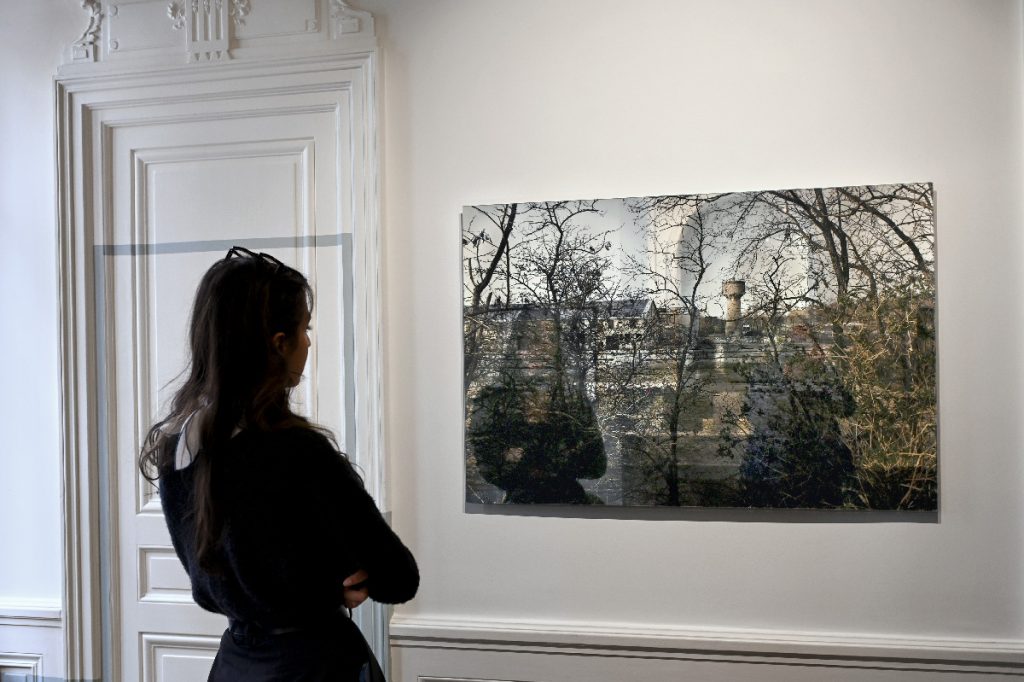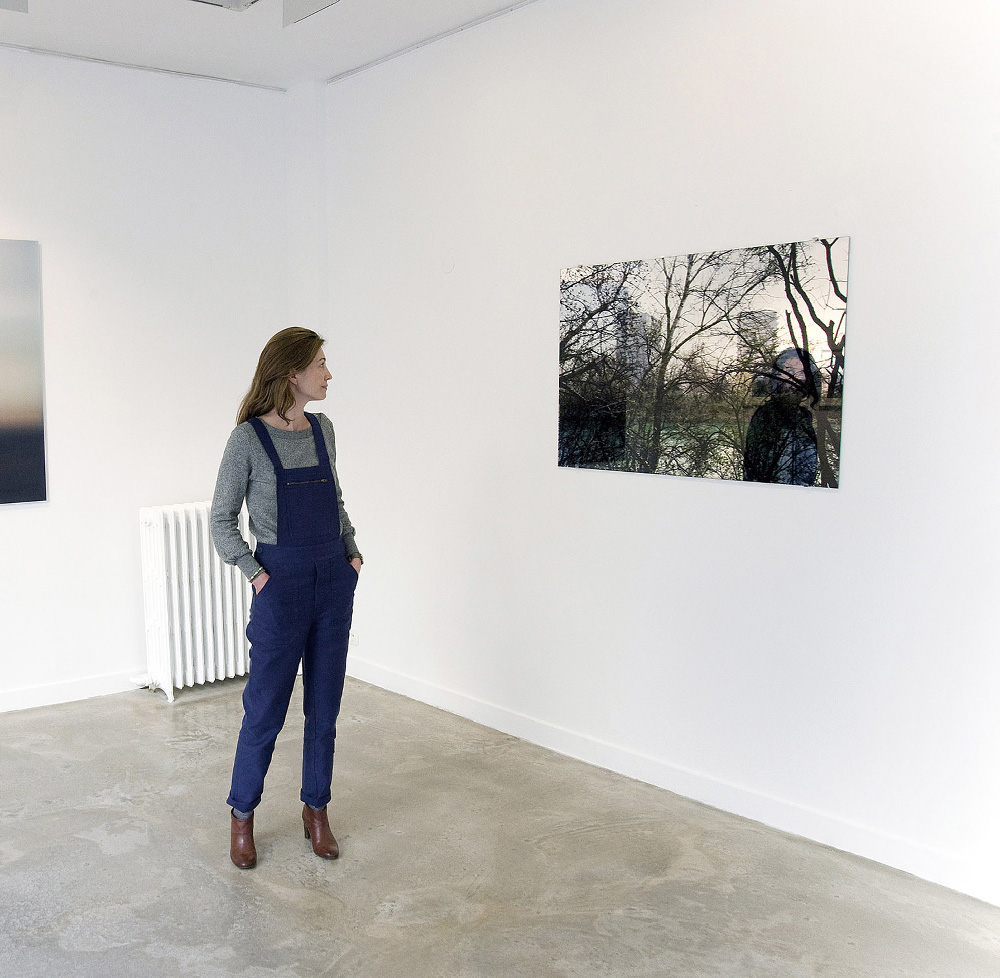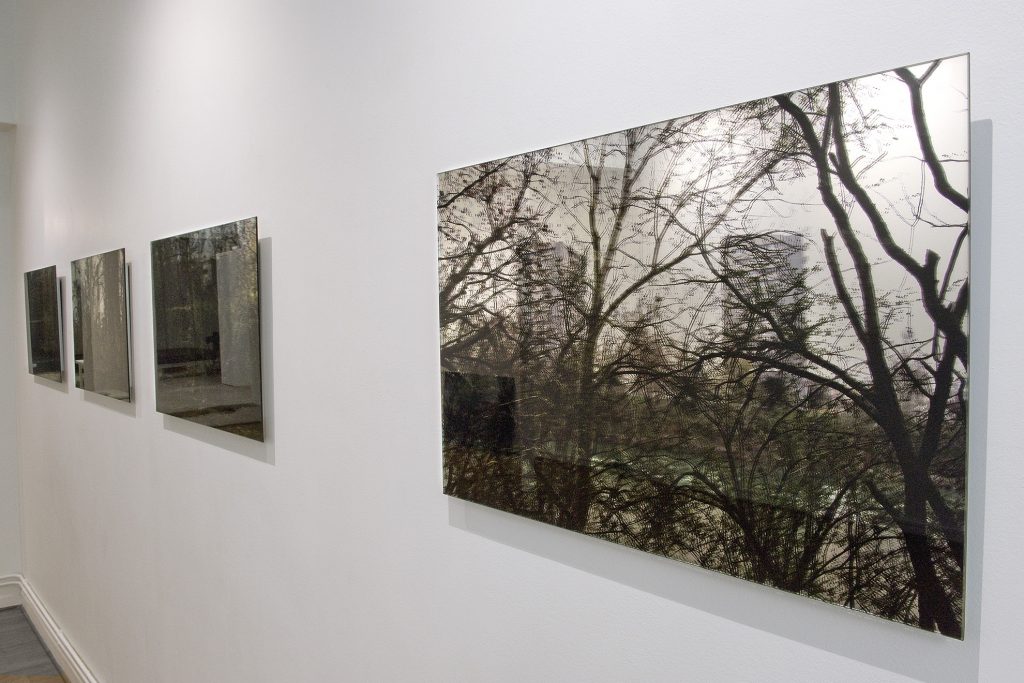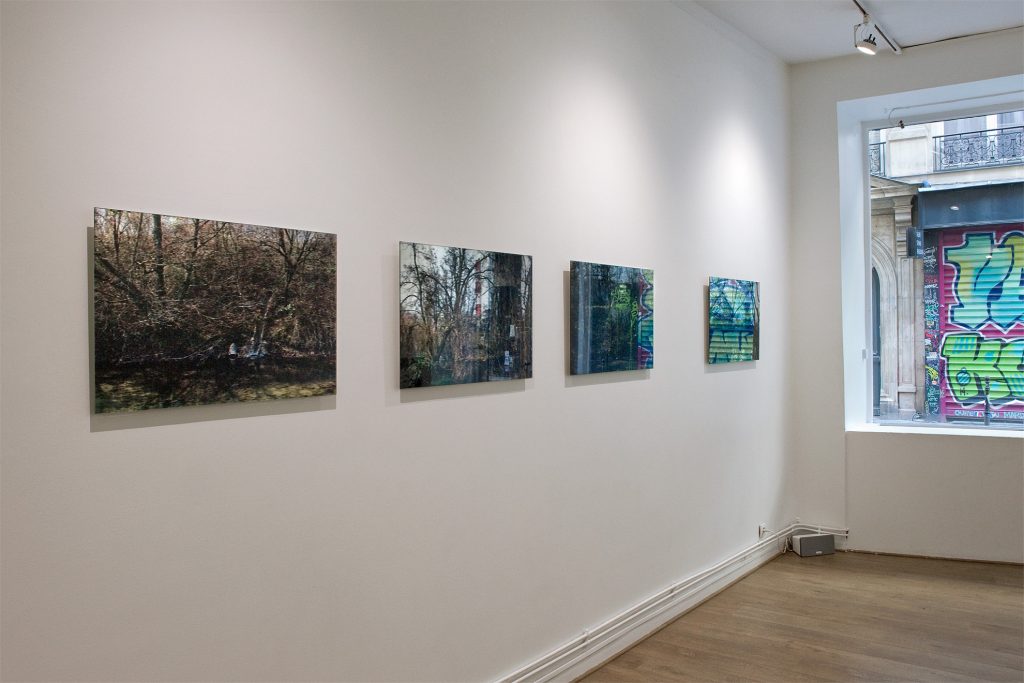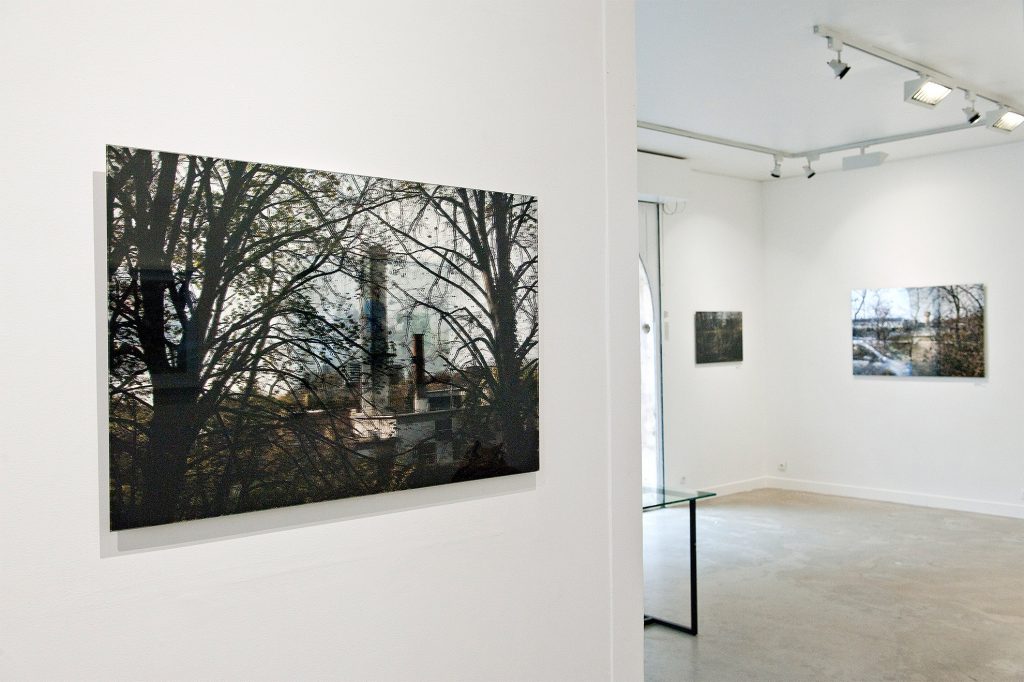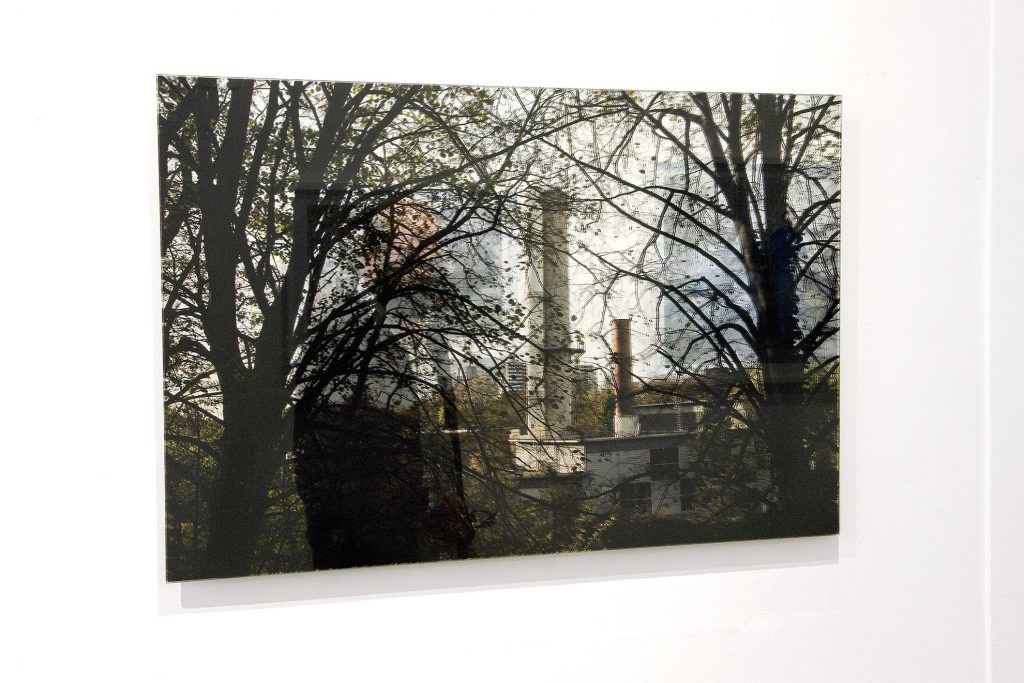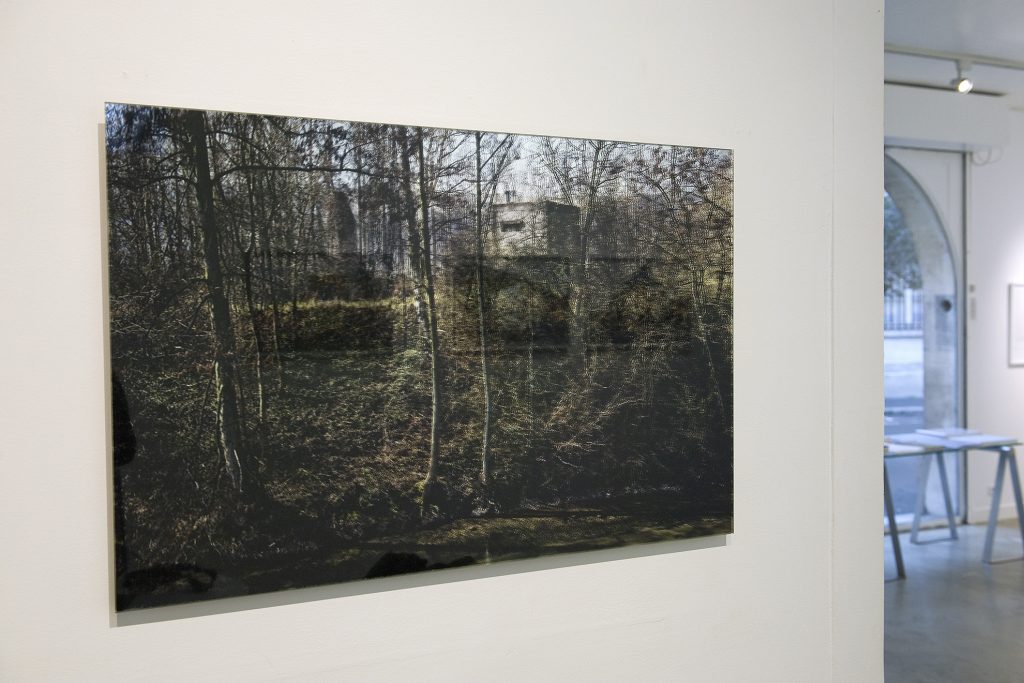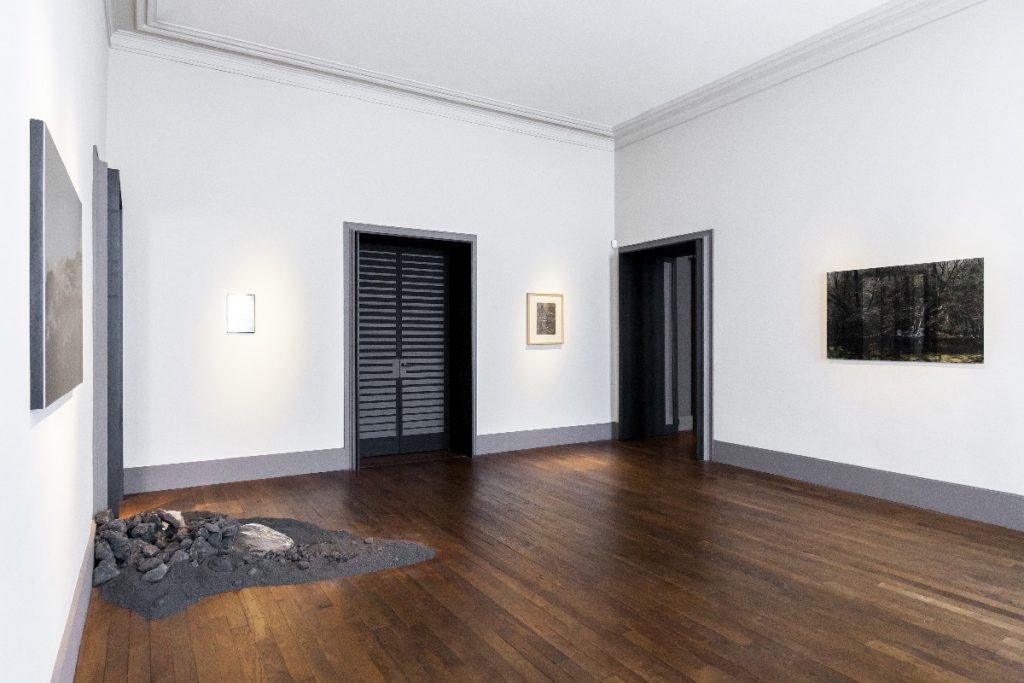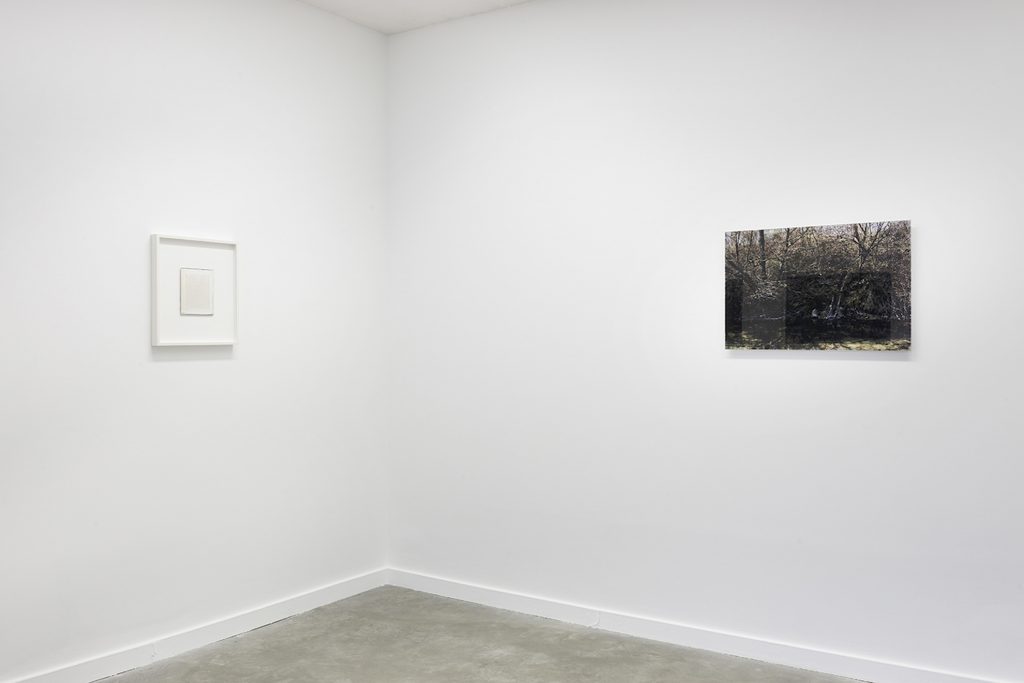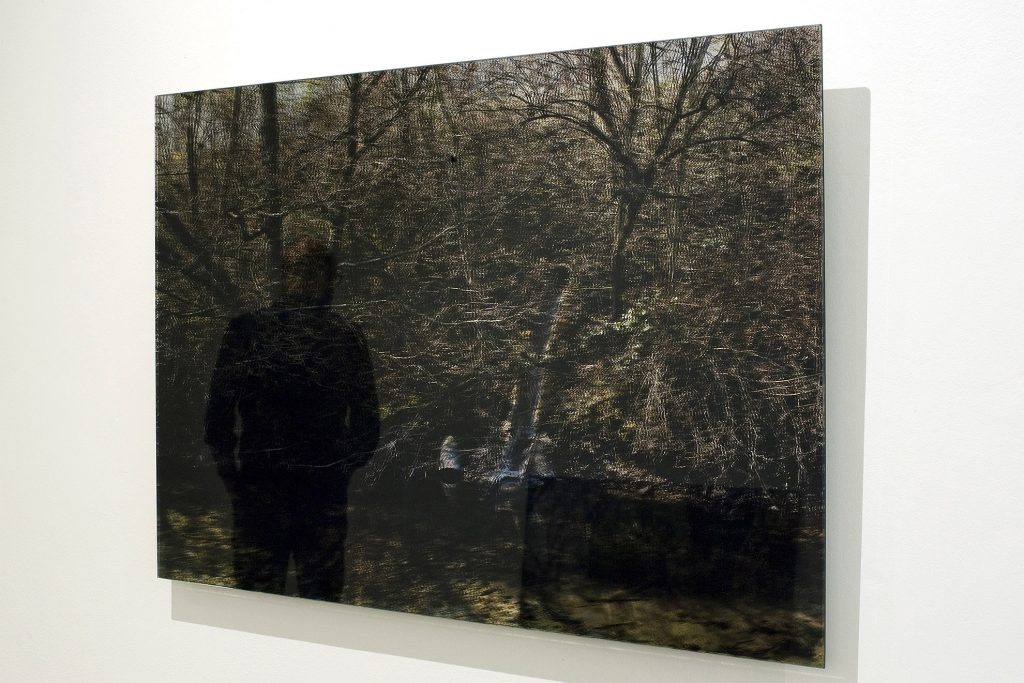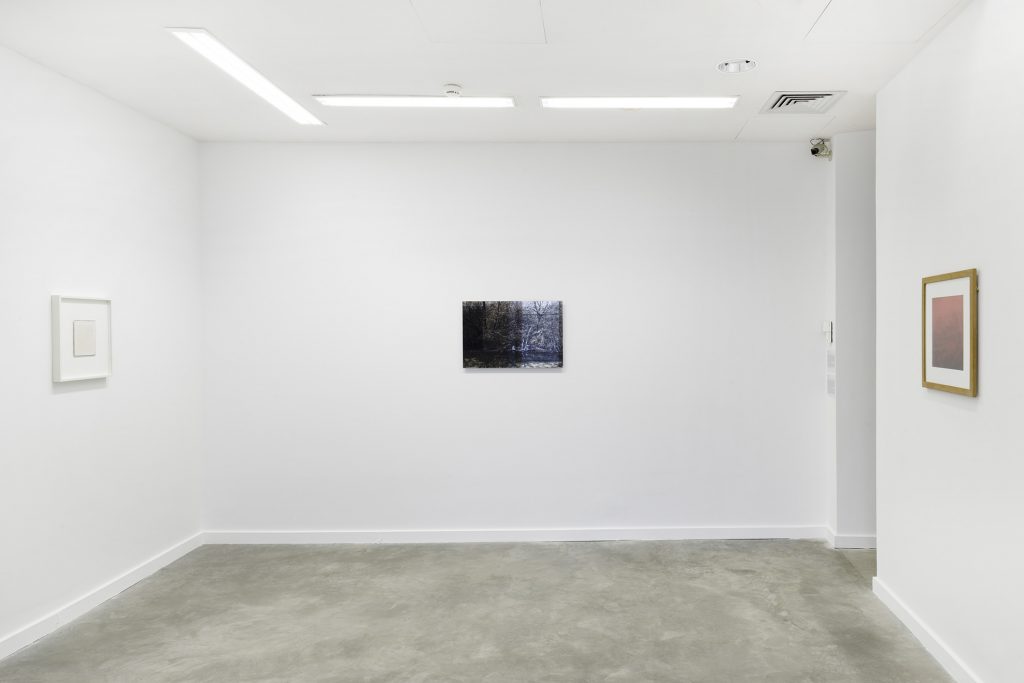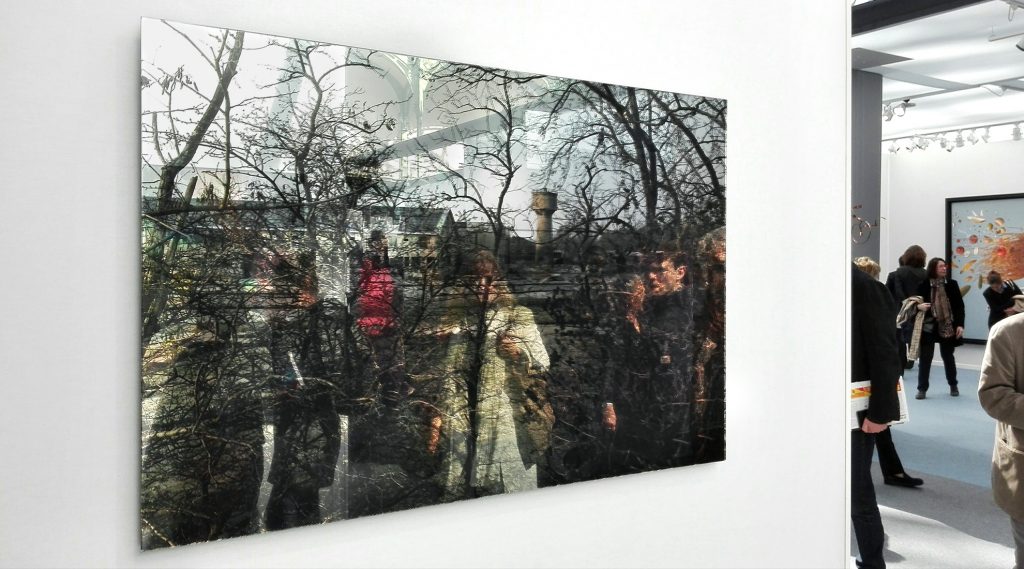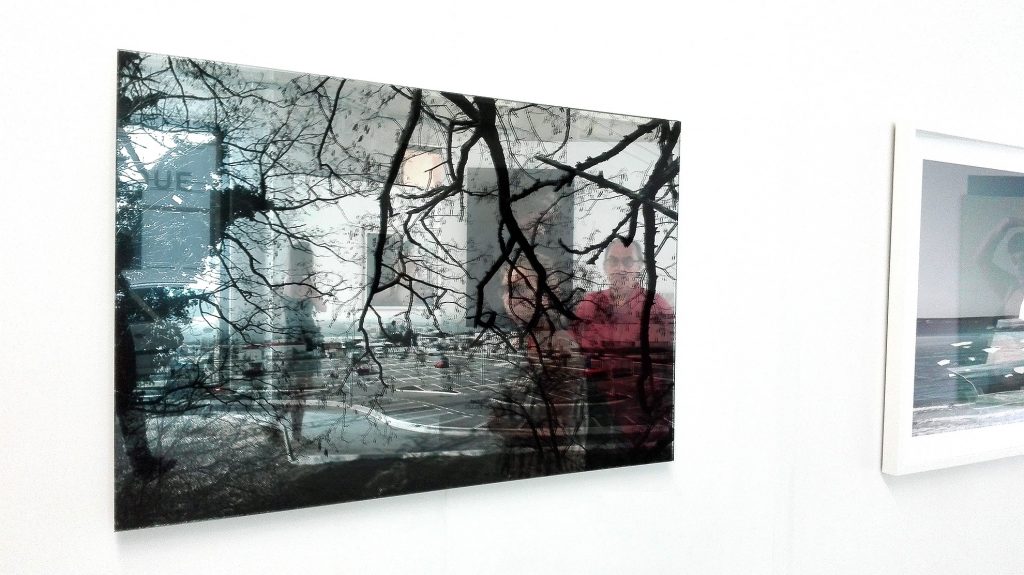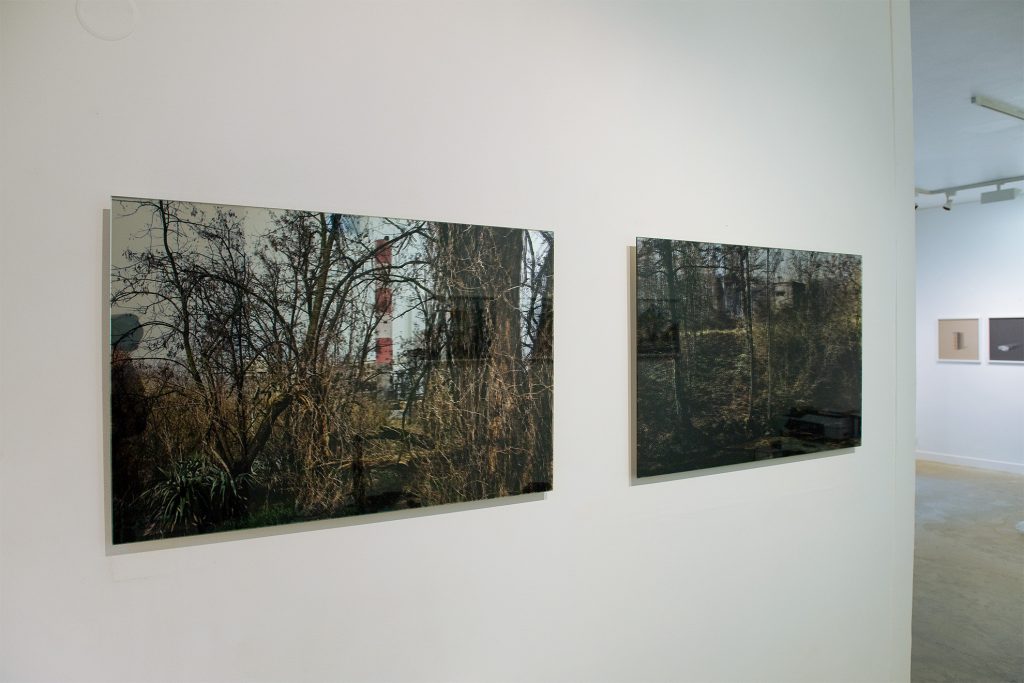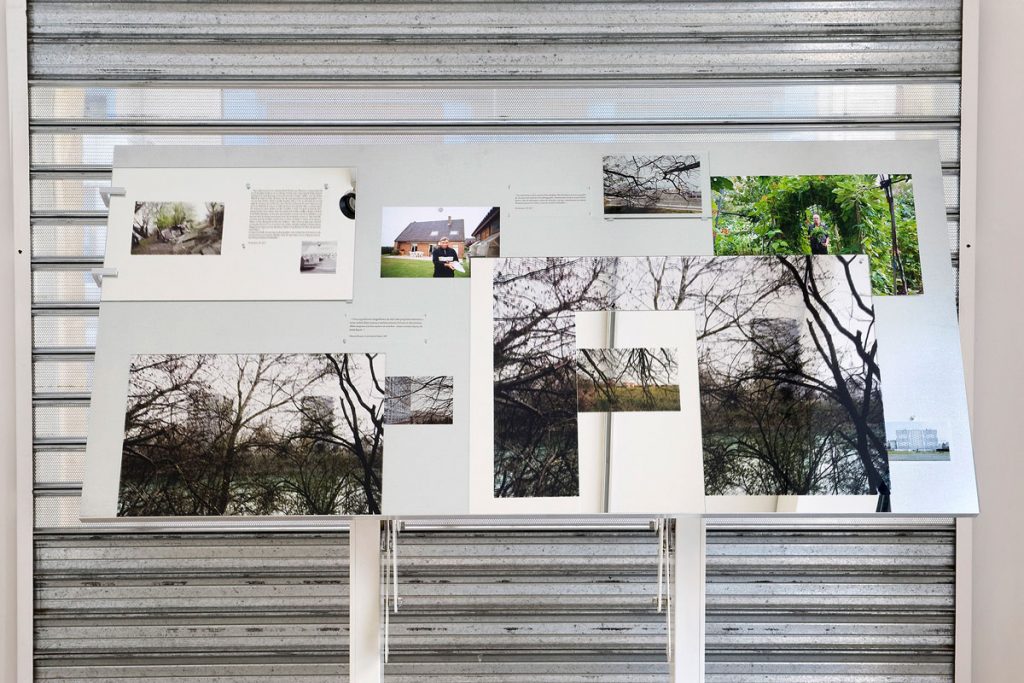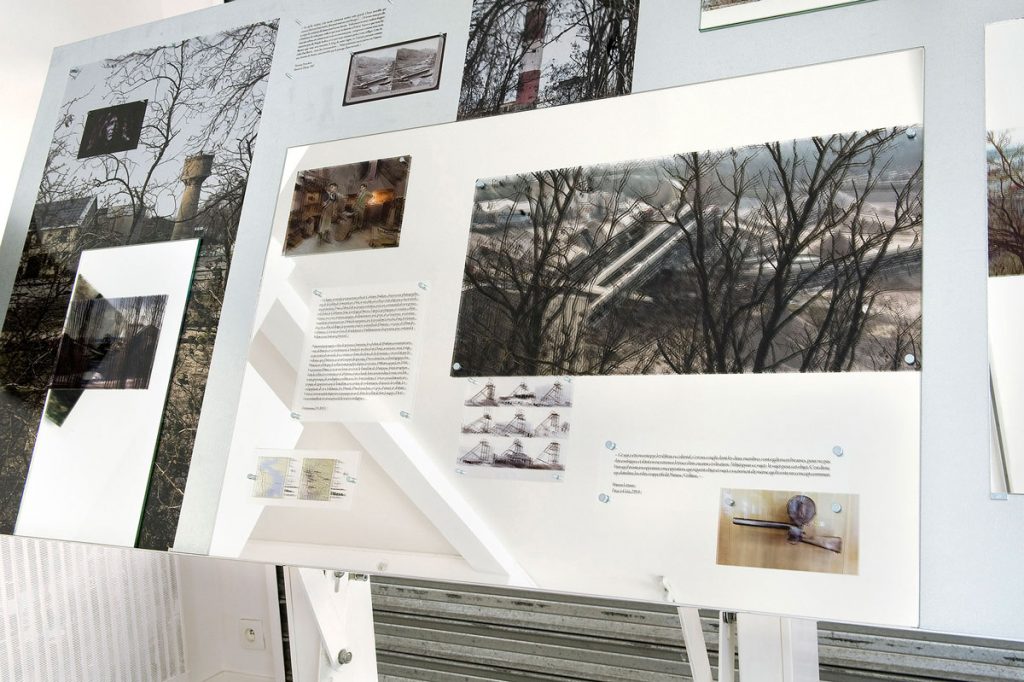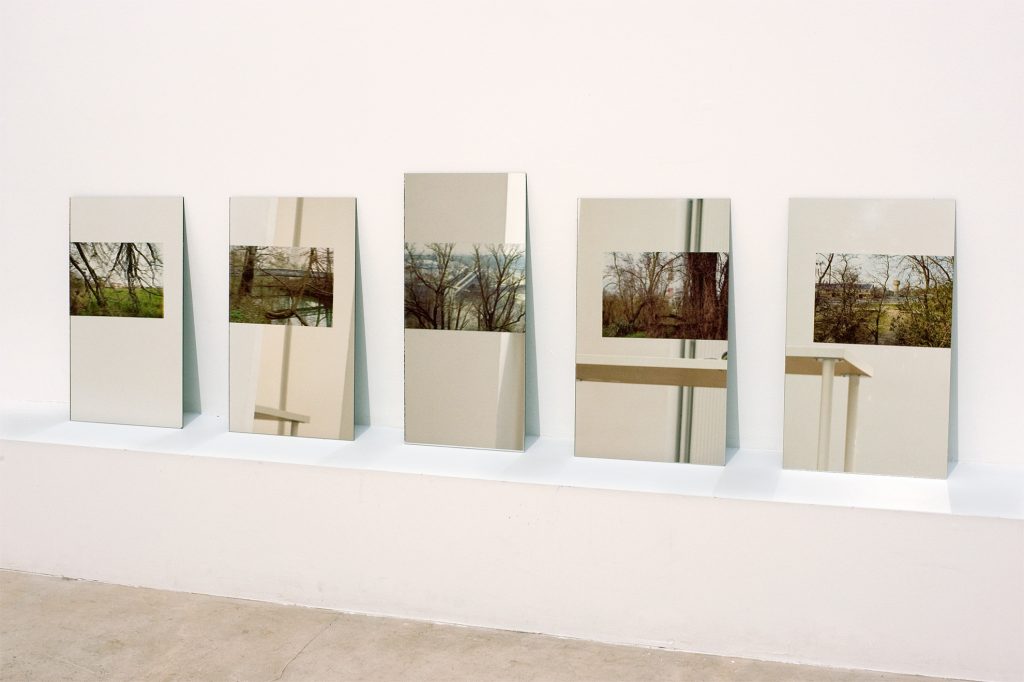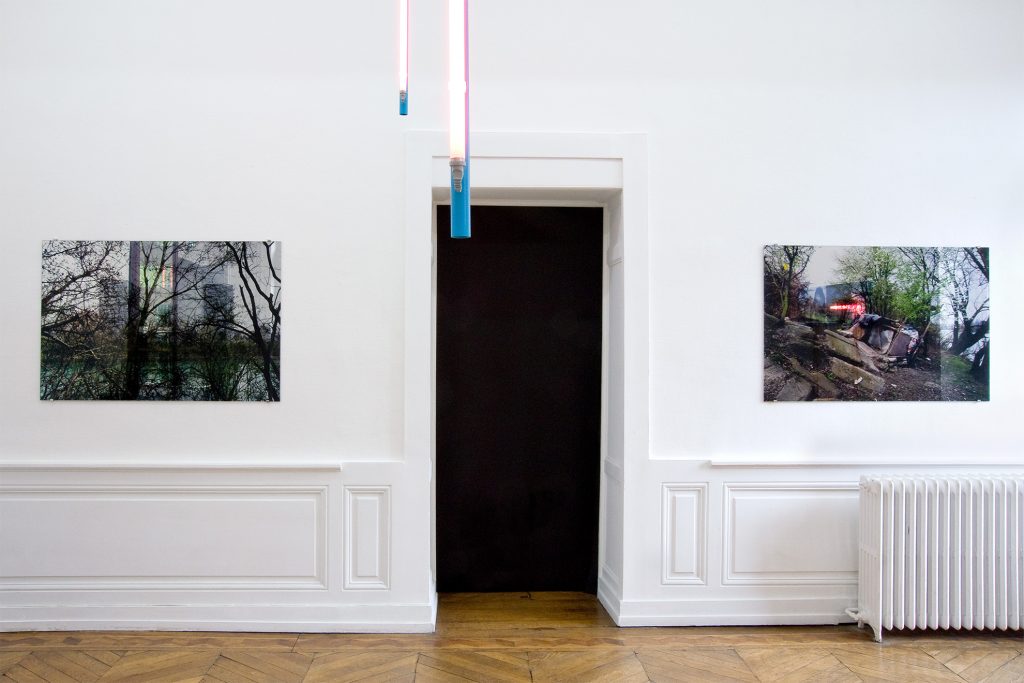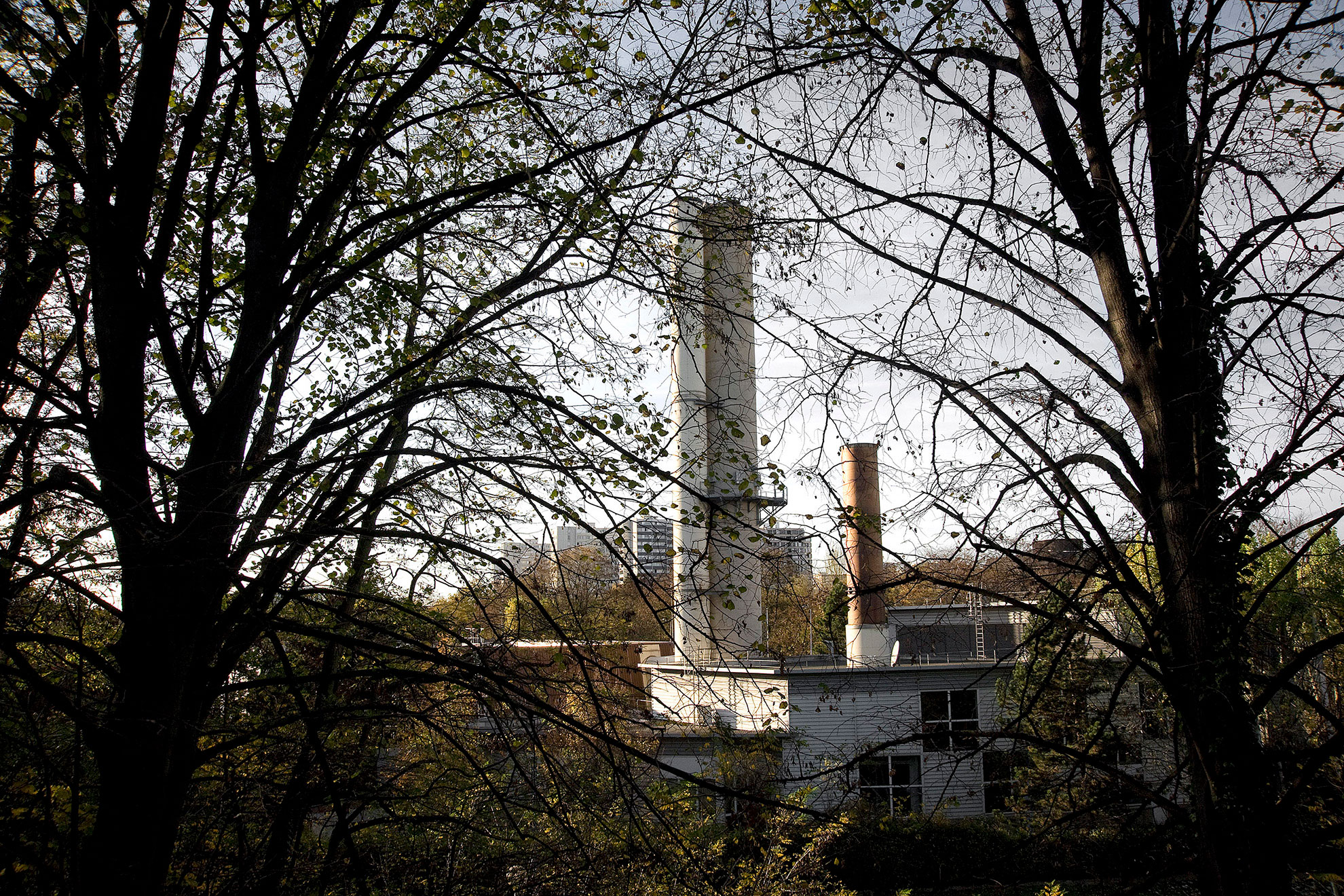(2018 – … )
« On this industrial drafting table, what is unfolding as a rhizome is indeed the territory of the work, constantly moving between words and images. »
Héloïse Conesa, conversation for The Photocaptionist, August 2019
Centrepiece of the Fractal Factory exhibition at Galerie Binome (2018), Fractal Table #01 was conceived as a prototype: an old industrial drawing table discarded by a mirror maker on which a table top covered with a steel sheet was adapted. As in photo labs, prints and transparencies can therefore be held by magnets, superimposed on mirrors. Evolutive – five successive versions were exhibited – and potentially mobile, the piece seeks to blur the boundaries between studio, exhibition furniture and installation.
Although it was created in connection with the Fractal Spaces series, it is open to the reinterpretation of other bodies of work – images, texts, archives – relating to the societal and environmental upheavals brought about by globalisation. The transformation of this obsolete furniture from the industrial era into a sculptural piece calls up different references: the lecterns of pre-digital libraries as well as the control consoles of factory lines or the multiple windows of computer screens. On the table space, images and texts are linked, refracted by the mirrors, and contextualised by the reflections of the exhibition space and of the moving visitors.
Fractal Spaces
(2013 - 2019)
Fractal Spaces is a body of photographs of peri-urban landscapes mounted on mirrors, exploring the disorientation of our relationship with nature and industry in the capitalocene era. Most of the images were taken at the end of the winter of 2016 in the Rhône Valley, the most industrialised region in France, during a residency at Moly Sabata, Albert Gleizes Foundation, at the invitation of Le Creux de l'enfer contemporary art center. The viewpoints - through budding tree branches - suggest that these images talk less about ruin than about mutation.
The Fractal Spaces landscapes mimic the established codes of topographic photography in order to subvert them: industrial parks, suburban housing and commercial developments are captured from a distance, under a neutral grey sky and without human figures. These contemporary stereotypes are reinterpreted through two forms of superposition.
The first one, the curtain of trees in front of the built-up background, reverses the perspective: it is not, as in the usual topographic photography, an altered nature that is being observed by man, but rather nature that is watching over threatened industrial spaces. A non-anthropocentric point of view questioning deindustrialization, and landscape mutations generated by a network economy in which we relate to the world through tree-like fractal structures.
At the post-production phase, a second effect is introduced by the mounting of transparent prints on mirror. The reflection of the vegetation and architecture in the mirror's shading, on different planes, invites a reading that is more specular than documentary. The pieces are activated by the viewer, who is invited to situate himself in relation to the images and the reality they reflect. It is thus an attempt to blur the divide between nature and culture, viewer and landscape, subject and object.
Related Documents
ESSAYS AND CONVERSATIONS
2022
Jean-Charles Vergne, text for Le promontoire du songe, exhibition catalogue, FRAC Auvergne
2021
Fares Chalabi “Des cristaux et des masques – sur la photographie cristalline et fabulatoire de Marc Lathuillière”
TK-21.com
2019
Text-image portfolio and conversation with Héloïse Conesa, curator at the BnF
"Refracting"
The Photocaptionist
PRESS
2018
France Inter"Marc Lathuillière ou l'art du masquage", interview by Brigitte Patient, Regardez Voir, 21.10.2018
2018
France Fine Art, Anne-Frédérique Fer, exhibition review and audio interview
2015
Mouvement
«Hôtel France», joint interview with Michel Houellebecq by Michel Poivert
PUBLICATIONS
2022
Le promontoire du songe, catalogue, FRAC Auvergne
2020
Quelque chose noir, catalogue, Galerie Gradiva
